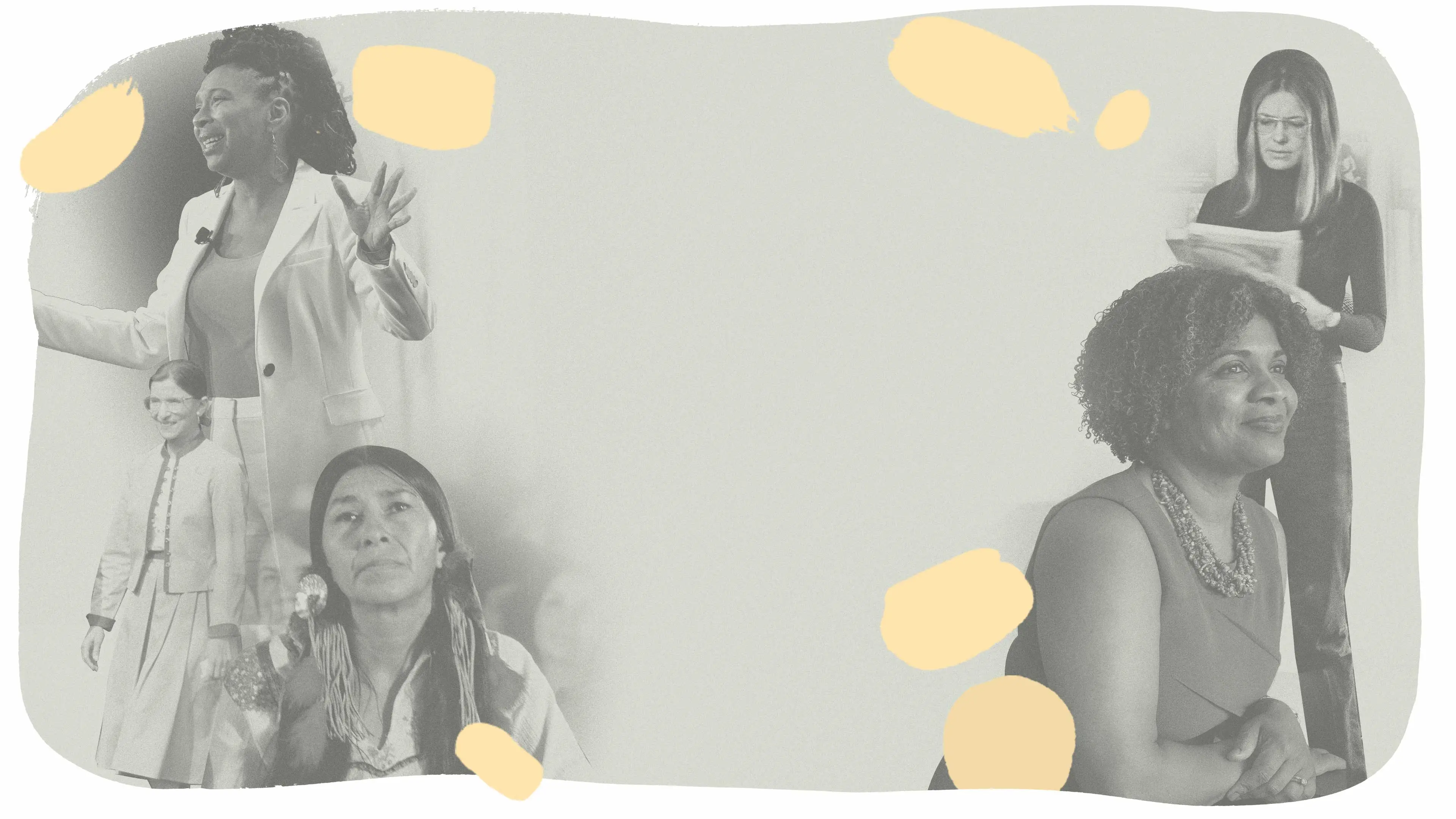
Changing the Game for
Women and Girls
For nearly 60 years, we have walked alongside our fearless grantees, past and present, as they built movements, fought for laws to be put into place, and shifted the global conversation around gender. They have taught us how to be a smarter, more effective foundation and, together, we are working to make equality possible.

Ford joins the feminist movement
In the 1960s, a handful of intrepid women within the Ford Foundation who saw their concerns reflected in the emerging feminist movement, approached then-president McGeorge Bundy to propose that the foundation expand its support of civil rights to include women’s rights. He listened—and it’s because of their audacity and insistence that Ford began to support gender equity.
1965
Birth control becomes legal
As states started to legalize contraception in 1965, Ford began funding reproductive health research and organizations like Planned Parenthood, which was founded on the revolutionary idea that women have the right to make their own decisions when it comes to their bodies. Planned Parenthood has since become America’s leading sexual and reproductive health care provider, treating 2.4 million patients last year alone, and now works with more than 120 organizations worldwide.
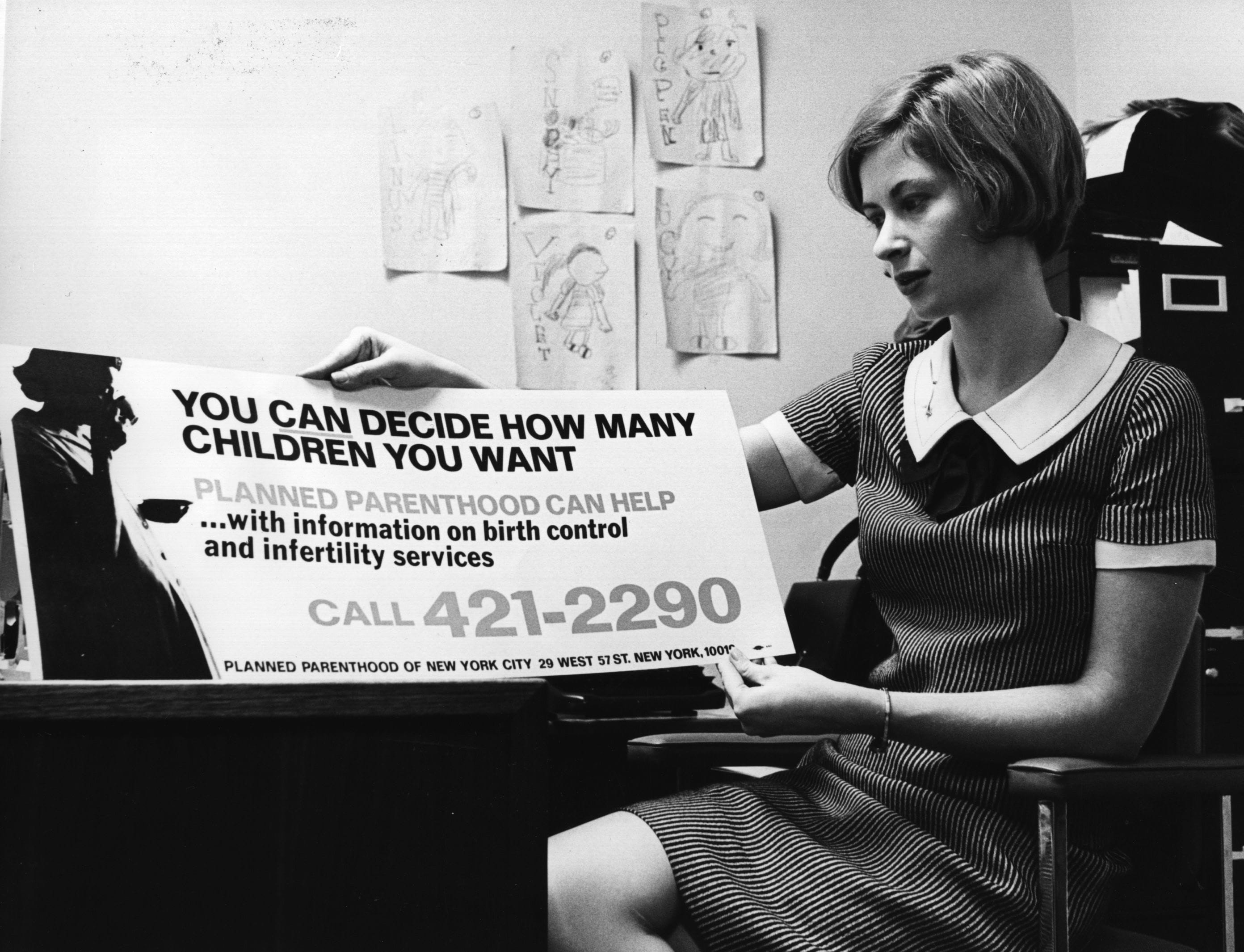
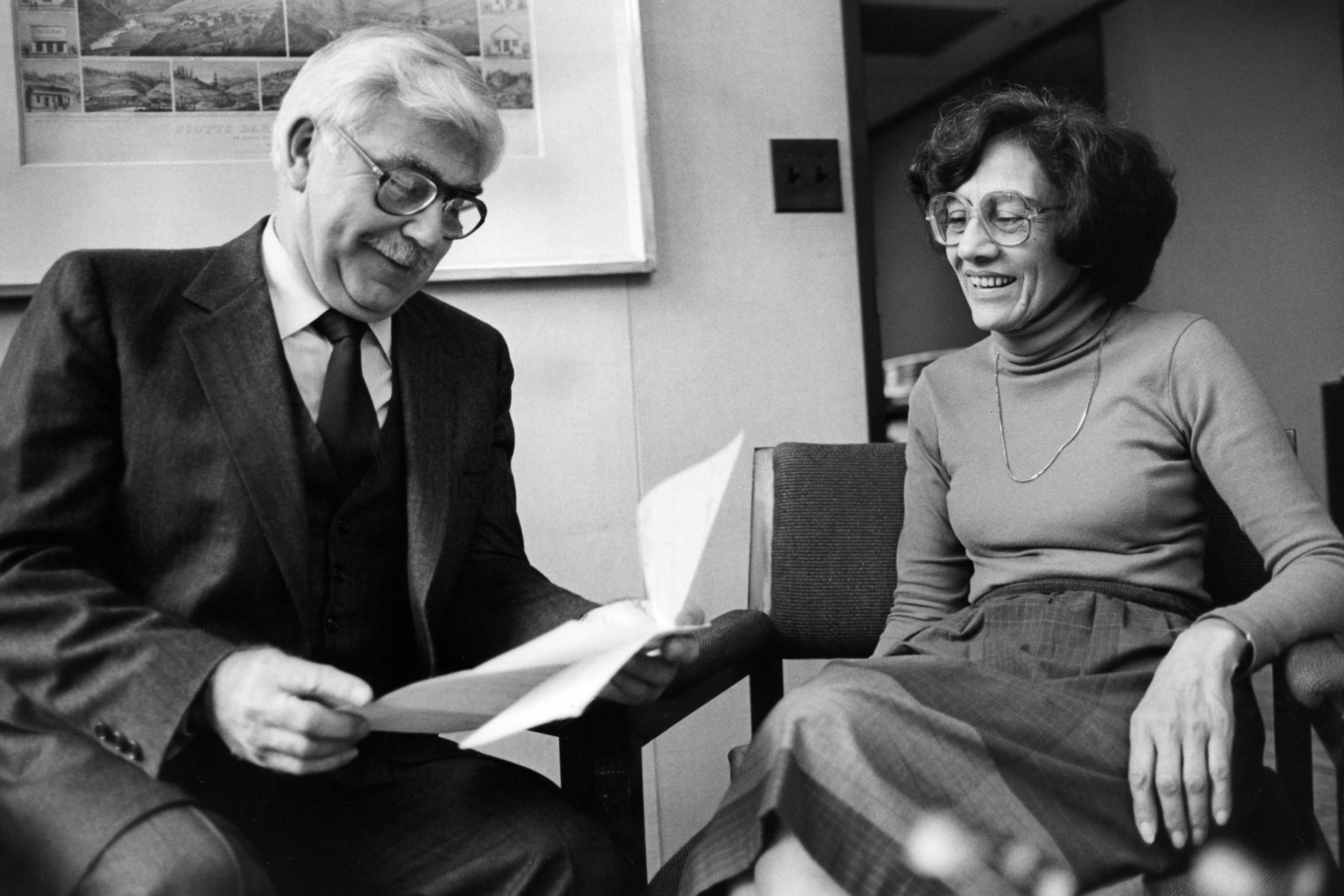
Putting women at the head of the class
Ford developed the academic field of women’s studies with the Rockefeller Foundation, Carnegie Foundation for the Advancement of Teaching, and others, to help us—and society as a whole—understand the social and cultural constructs of gender and their relationship with race, ethnicity, economic status, and more. Today, there are more than 535 women’s studies programs offered in more than 700 institutions in the United States and across 40 countries worldwide.
1971
Ruth Bader Ginsburg creates the ACLU’s Women’s Rights Project
In 1971, Ginsburg, then a law professor at Rutgers University, and attorney Brenda Feigen created the Women’s Rights Project with the help of Pauli Murray and Dorothy Kenyon. With Ford’s support, the project handled 300 discrimination cases in its first two years and has since been behind systematic legal reform for women’s equality.

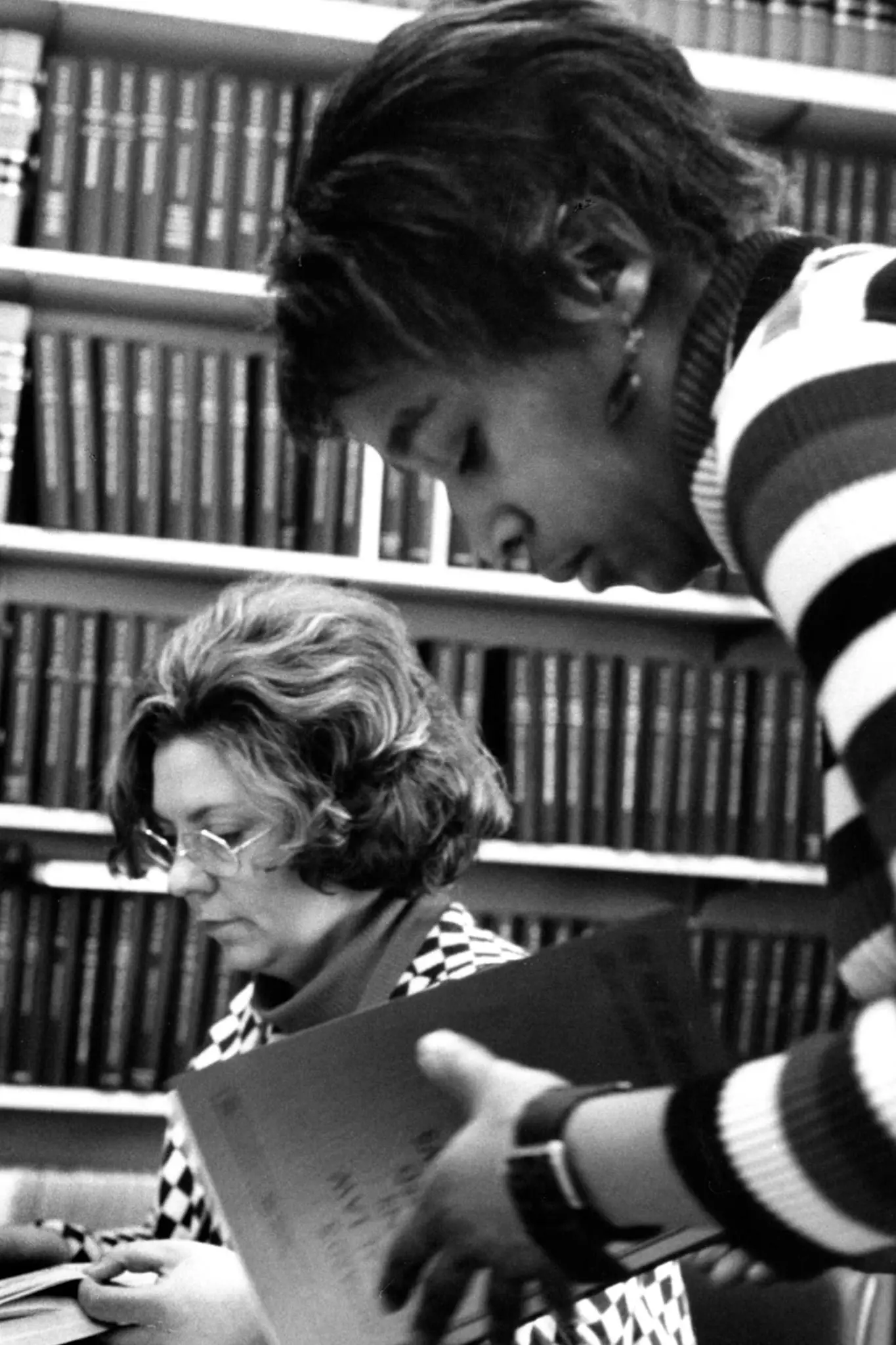
The Women’s Law Fund becomes the first nonprofit to address sexual discrimination
In partnership with law professors Jane Picker and Lizabeth Moody and the Cleveland Foundation, Ford established the Women’s Law Fund in 1972. One of its most notable cases was Cleveland Board of Education v. LaFleur, a landmark case that reached the US Supreme Court in 1973 and made restrictive maternity leave unconstitutional, an important decision that grappled with equal employment and a women’s right to bear children.
Working women get down to business
Ford funded 9to5 National Association of Working Women, which, over the course of its nearly 50 years in existence, has successfully helped pass major policies, such as the 1978 Pregnancy Discrimination Act, the Civil Rights Act of 1991, and, most recently, the Lilly Ledbetter Fair Pay Act. Fun fact: The organization also inspired Dolly Parton’s hit song, “9 to 5,” a feminist and worker’s anthem.
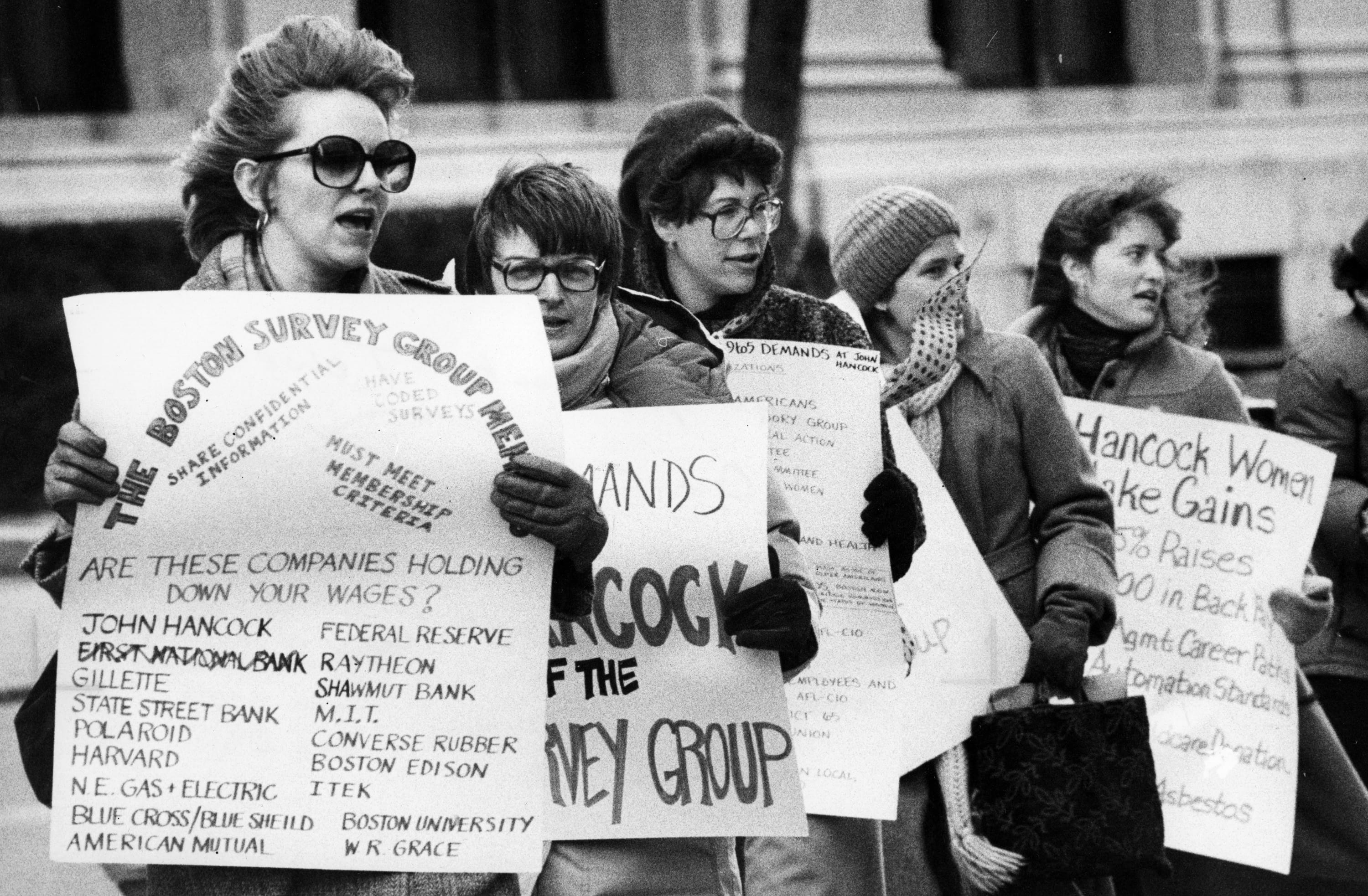
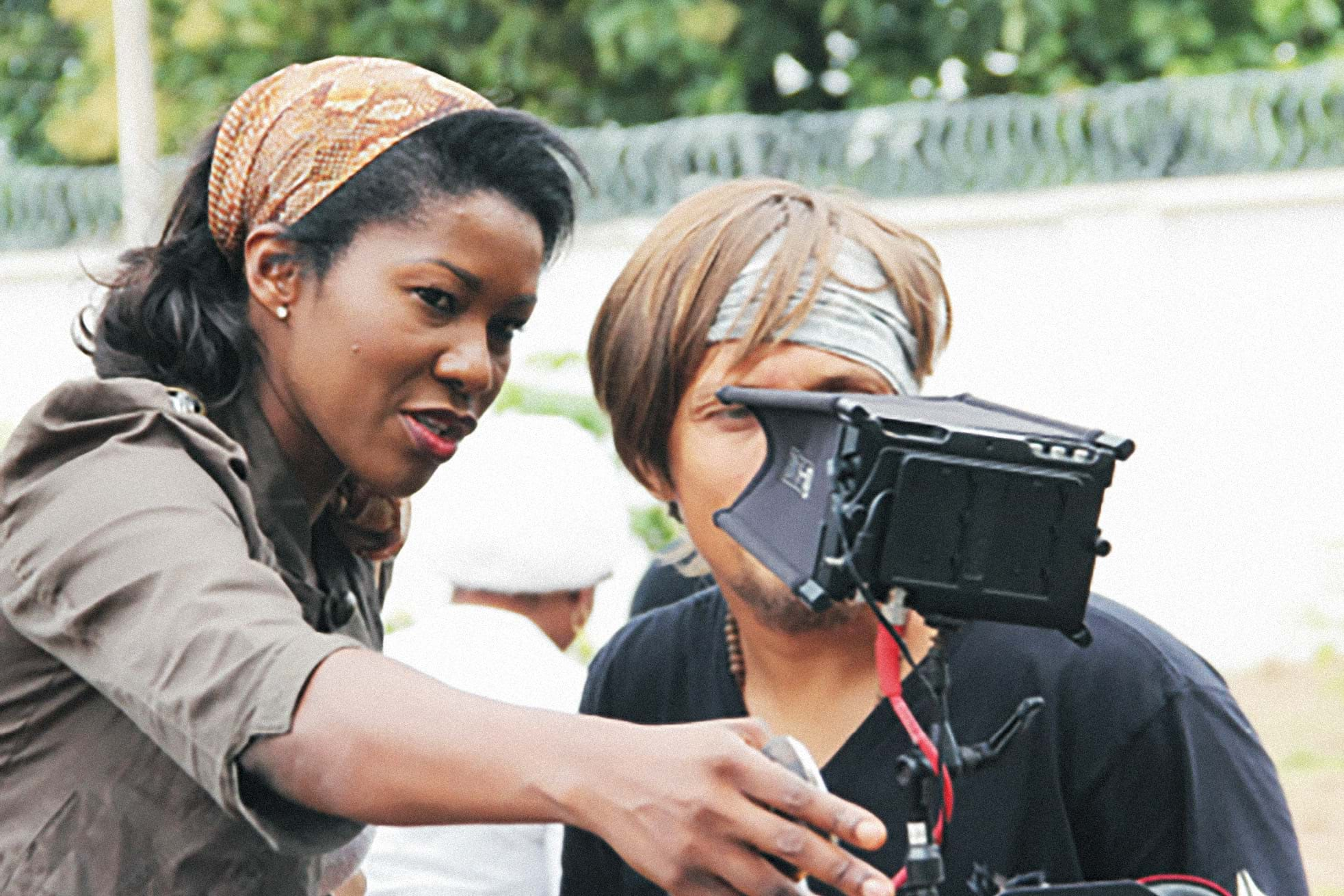
1974
The American Film Institute helps women pursue careers behind the camera
In 1974, the institute created its acclaimed workshop for women directors with Ford funding, which has trained more than 300 filmmakers to date. This decision kicked off a strategic commitment at Ford to support all types of women artists and writers, and to champion films—such as Difret, Dry, and Half the Sky—that amplify the voices, stories, and perspectives of women. This work continues today through our Creativity and Free Expression program.
The UN declares 1975 International Women’s Year
With this declaration, the UN held its First World Conference on Women in Mexico City, escalating the global discourse on women’s rights. Ford helped to bring a number of organizations from Asia, Africa and Latin America to Mexico City to ensure women from the Global South would not just be part of but inform the conversation. From there, the foundation began to expand its efforts to support gender equality across the globe and examine how gender played into its international programs.
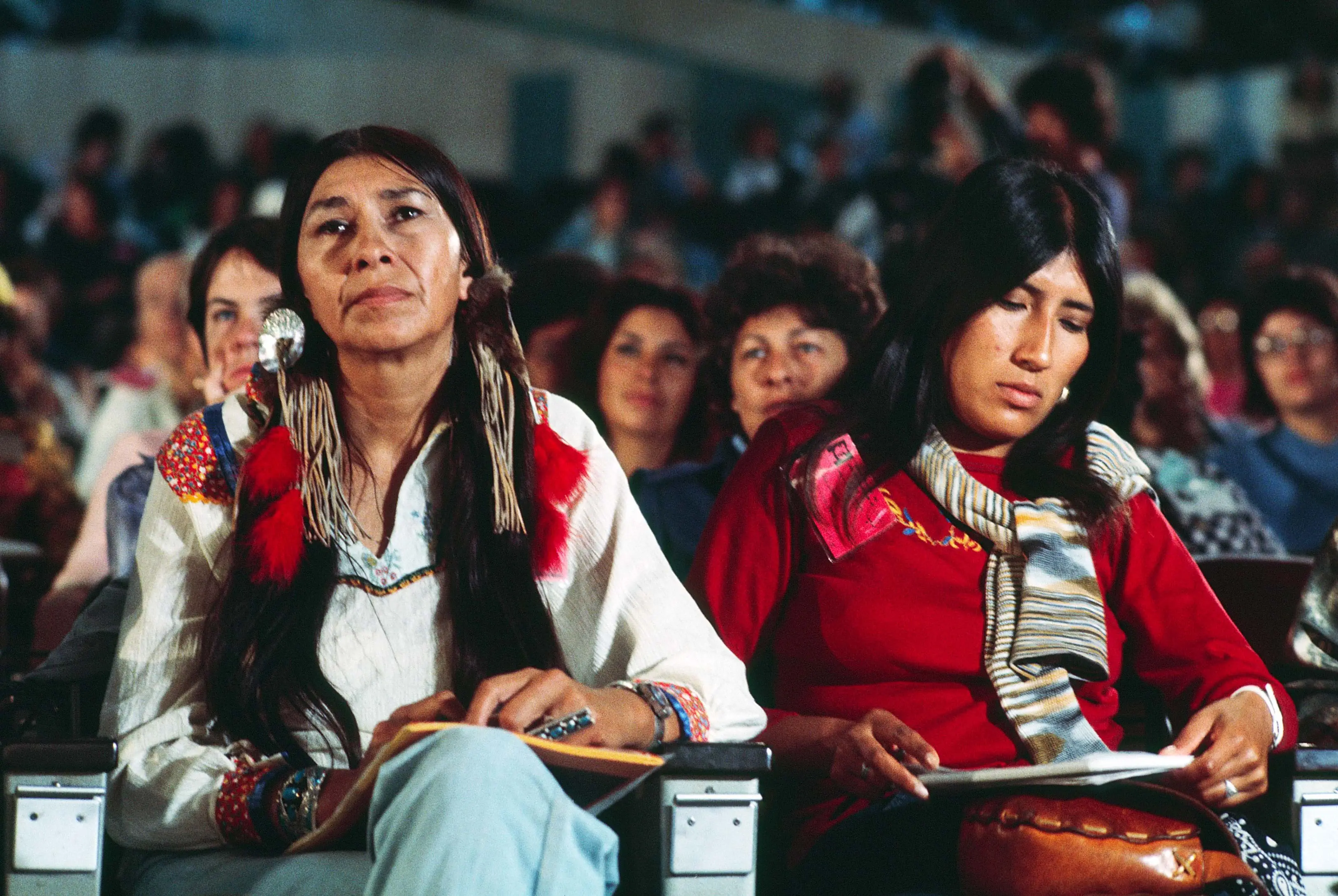
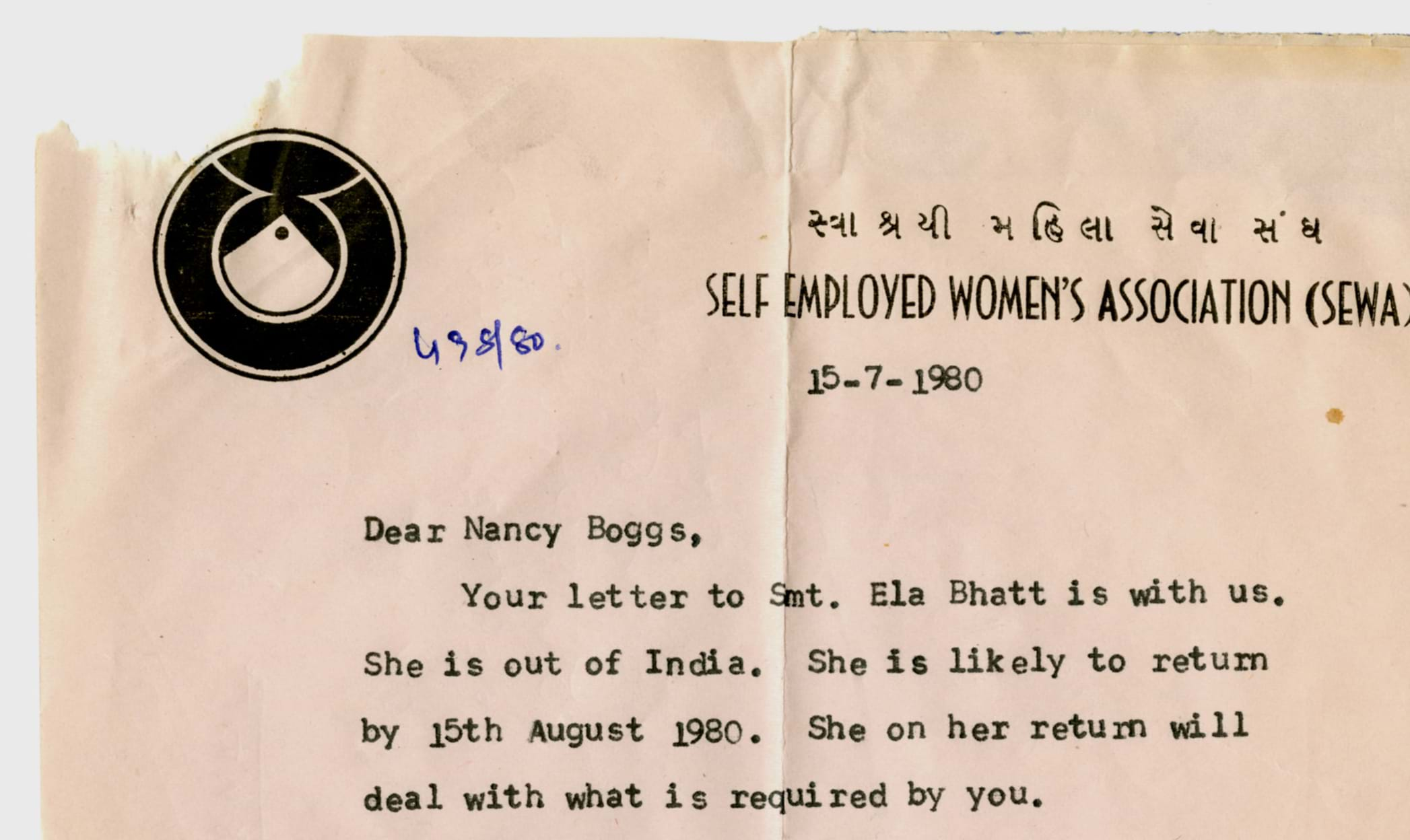
Ela Ramesh Bhatt builds a movement to empower India’s low income women
After a long career of organizing for women’s and worker’s rights, Bhatt founded Self-Employed Women’s Association (SEWA), which Ford funded shortly after its creation in 1972. SEWA was created to empower low-income women working across India to find personal fulfillment and earn a living on their own. Today, the organization has provided small loans to and trained more than two million women.
Ford Fellow Gloria Steinem creates the Ms. Foundation
Steinem, who had established herself as an instrumental voice in America’s feminist movement, founded Ms. magazine and Ms. Foundation with Letty Cottin Pogrebin, Patricia Carbine and Marlo Thomas in 1972. Ford provided ongoing funding to the Ms. Foundation to support its efforts to advance women’s social and economic status and protect their rights. Steinem went on to create the Women’s Media Center, the Women’s Action Alliance and the National Women’s Political Caucus and, at 85, remains at the forefront of women’s causes.
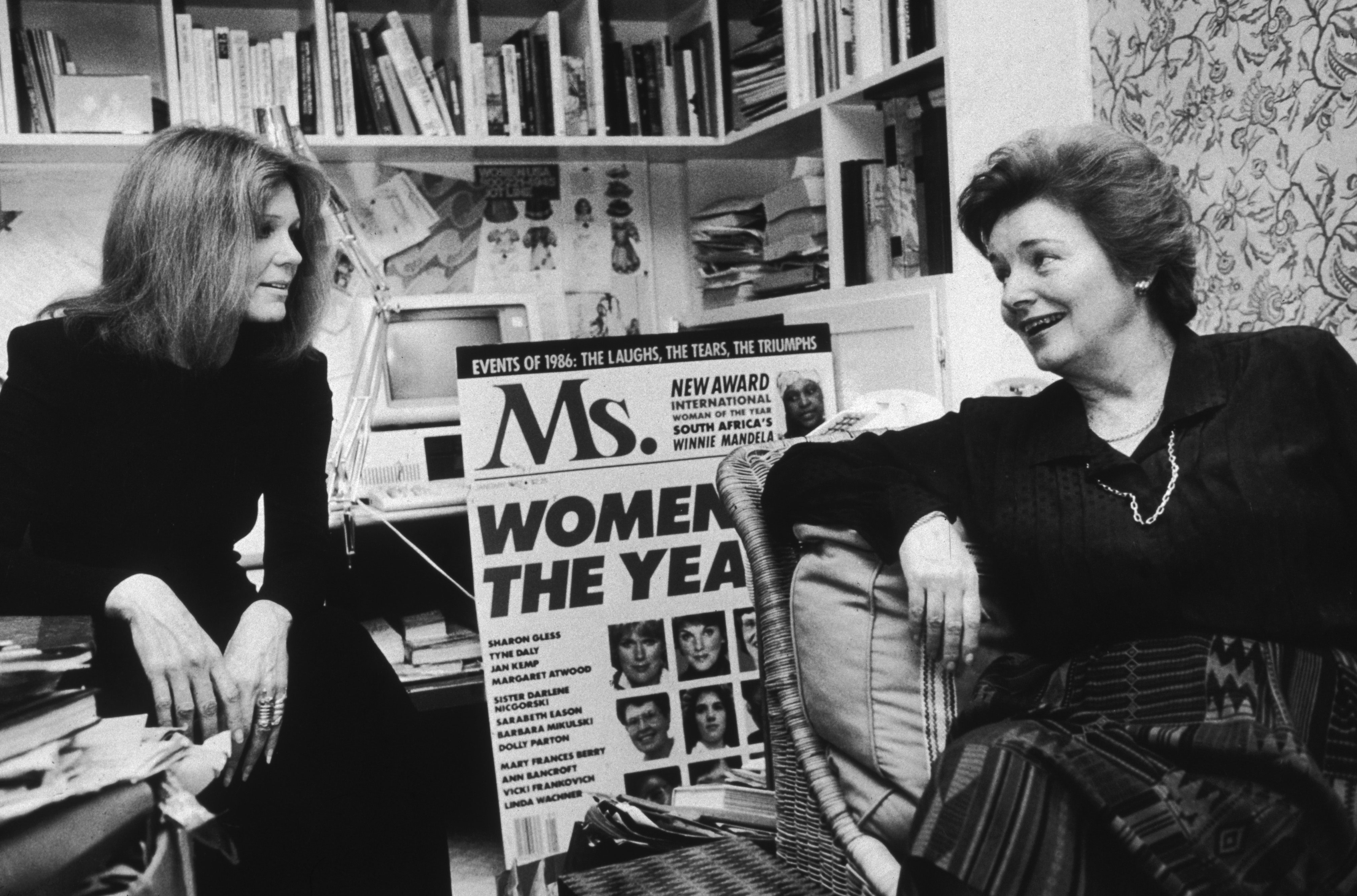
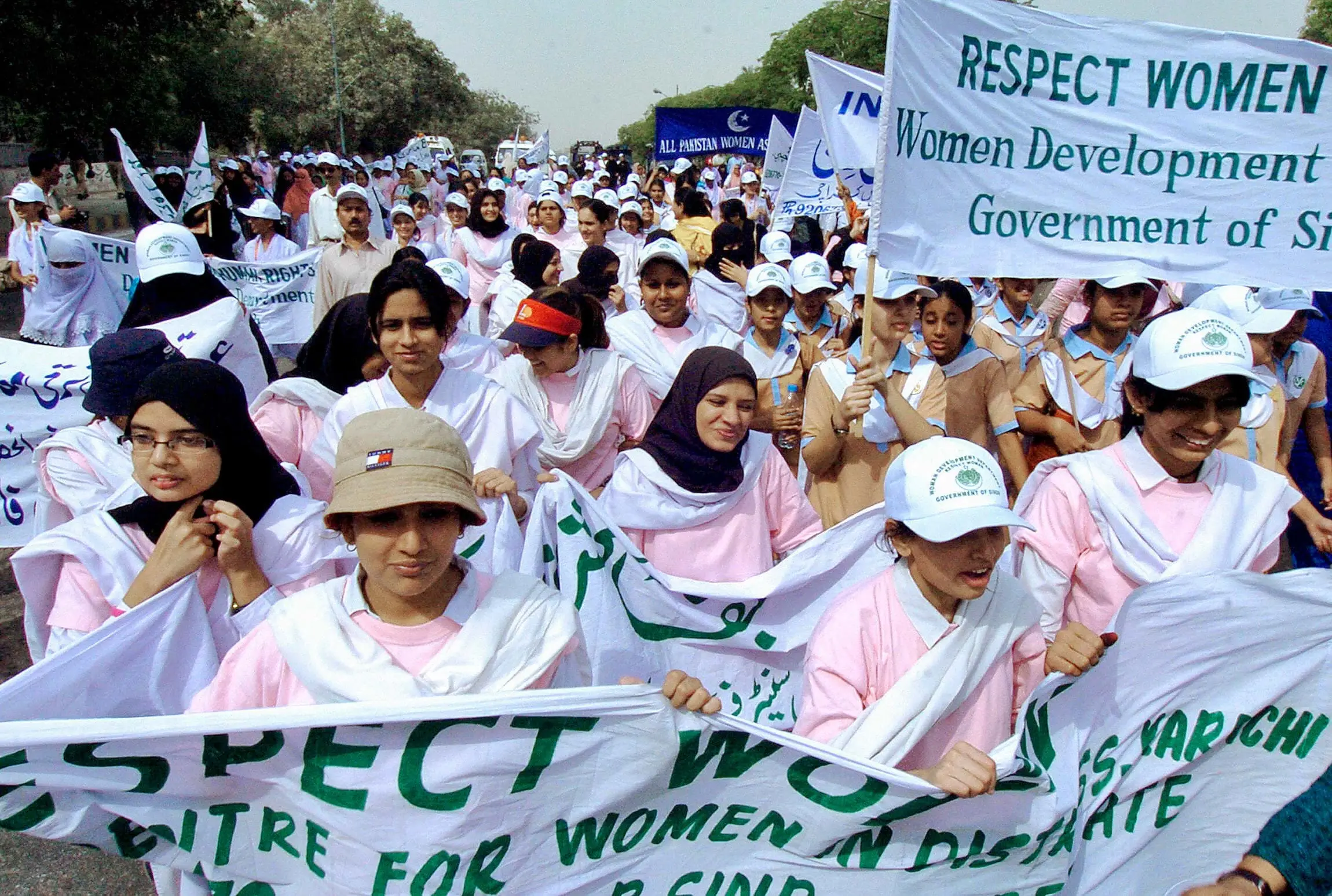
1979
The UN establishes an international bill of rights for women
In 1979, when the UN committed to eliminating discrimination of all forms against women, Ford increased its efforts to protect human rights locally and globally. We funded a number of legal rights organizations, such as the Women’s Legal and Human Rights Bureau in the Philippines and nonprofits in Nepal, China, Bangladesh and Indonesia working to educate women of their legal rights and seek justice on their behalf. Ford also helped establish what became Human Rights Watch and encouraged the organization to recognize women’s rights as human rights. Today, Human Rights Watch defends the rights of people in more than 90 countries.
Connie Field creates The Life and Times of Rosie the Riveter
Field’s acclaimed documentary, the first of her career, chronicled the pioneering American women who stepped up during World War II to perform “men’s jobs,” like working in factories and running shipyards. The Ford-funded film earned 15 international awards for best documentary, has been preserved by the US Library of Congress, and has remained in active distribution for more than 30 years.
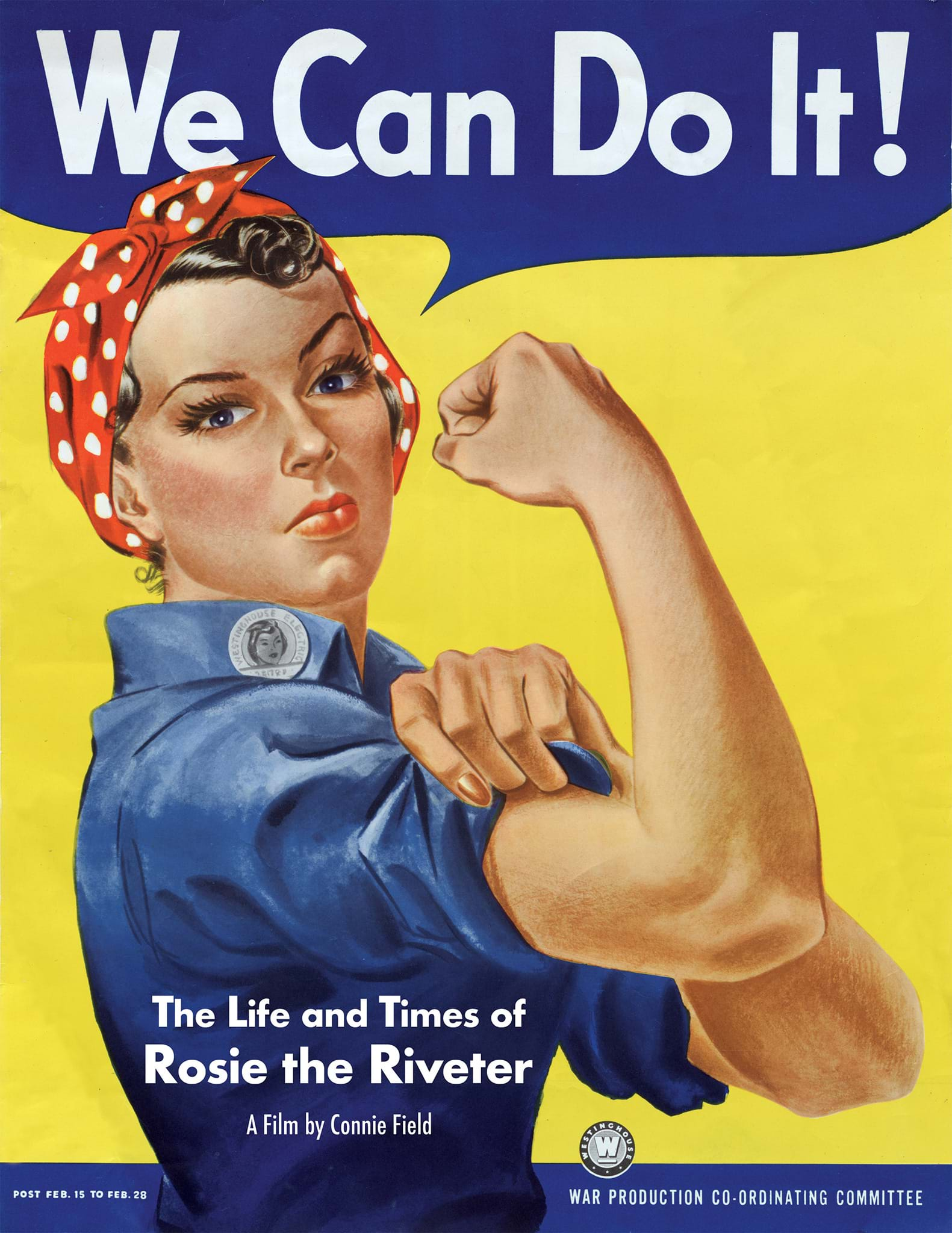
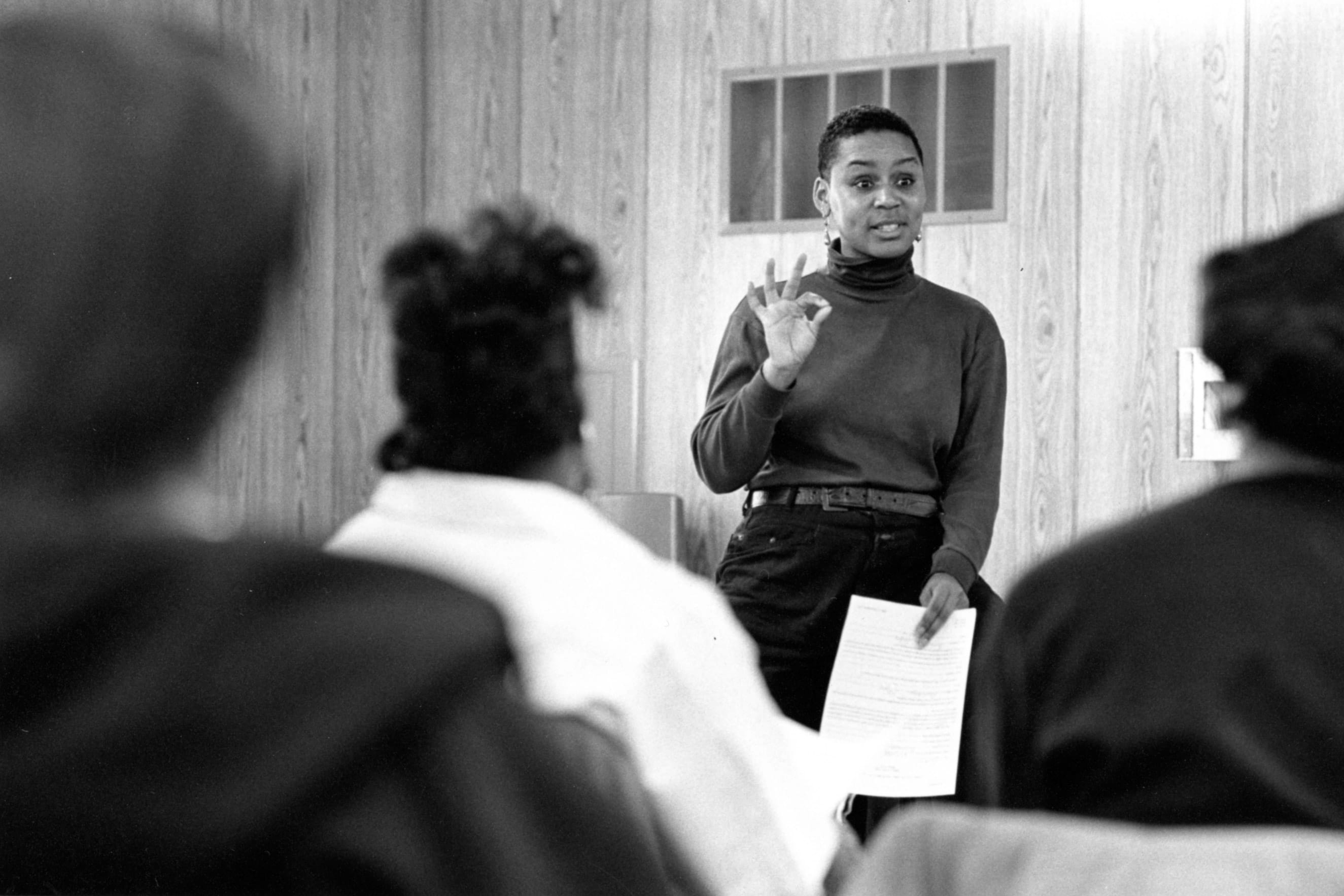
1981
Title IX of the Education Amendment passes
Thanks to the efforts of the National Women’s Law Center, Title IX became law, making it illegal for schools to discriminate against students on the basis of sex. The center, which Ford began to invest in in 1981, has gone on to win landmark cases to significantly improve the lives of women in the US and increase the number of women judges over the past 40 years.
1982
The National Council for Research on Women builds the case for gender equity
In 1982, the National Council for Research on Women brought together 28 academic centers to drive policy for women’s equality in the US. The research, supported by Ford, evaluated the roles and contributions of women in society, and the center (now merged with the International Center for Research on Women) went on to become an instrumental platform for feminist research, working with multiple sectors and disciplines on issues across the gender spectrum.
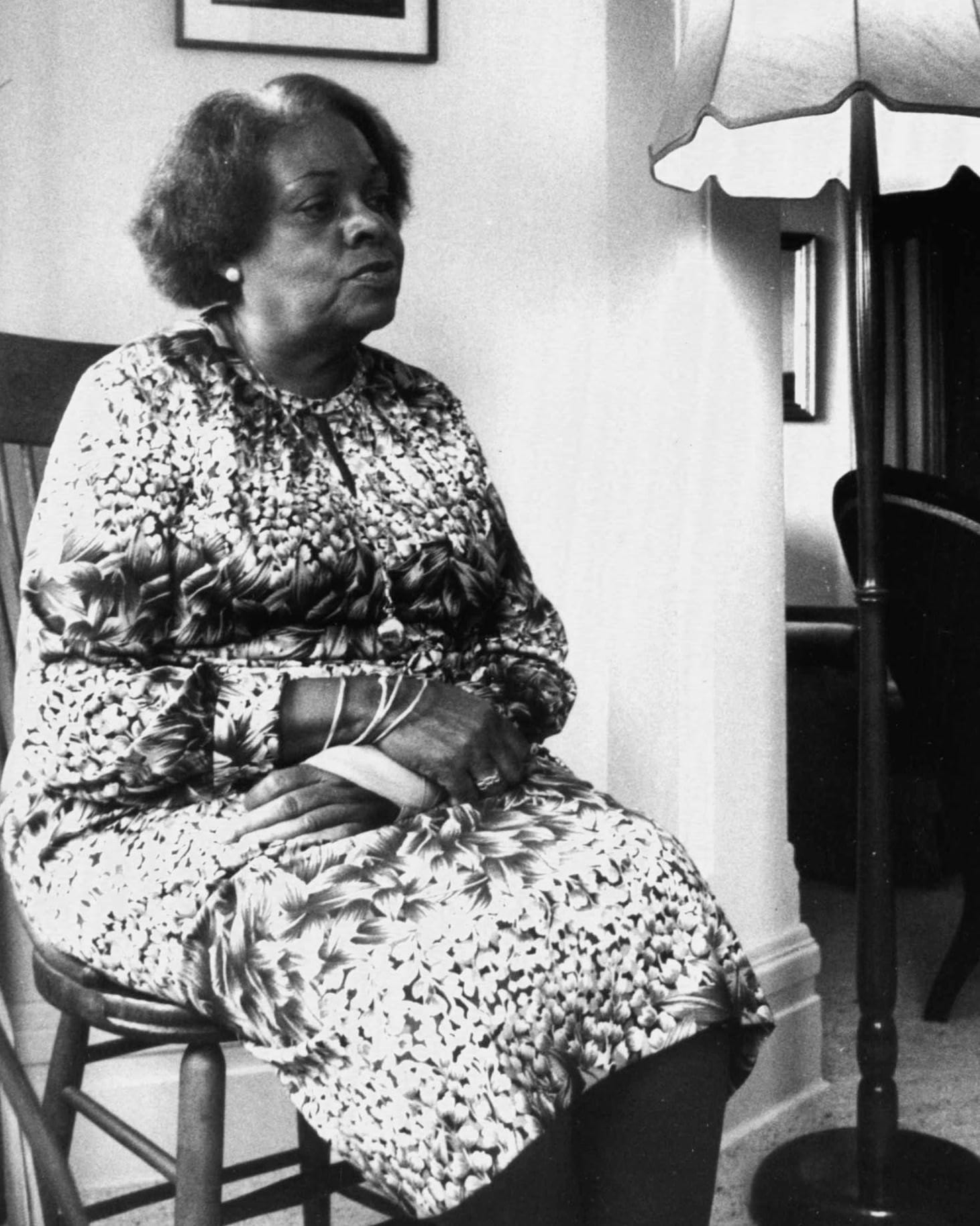
1987
A global fund for women’s grassroots movements
In 1987, four bold women—Anne Firth Murray, Frances Kissling, Laura Lederer and Nita Barrow—who believed in the power of women to change their lives—and the world around them—created the Global Fund for Women. Since 1988, Ford has proudly funded their efforts to support and amplify feminist movements and grassroots organizers challenging the status quo. To date, the fund has supported 5,000 women-led groups across 175 countries, helping win rights for millions of women and girls.
1992
The Center for Reproductive Rights is founded
In 1992, Ford helped establish what is known today as the Center for Reproductive Rights and, with our continued support, it became a formative player that has strengthened laws and policies to protect women’s rights in more than 50 countries. Reproductive health remains a core part of gender justice work up until today, and we have supported organizations, from the World Health Organization and the International Women’s Health Coalition to the African Women’s Development Fund and Central American Women’s Fund.
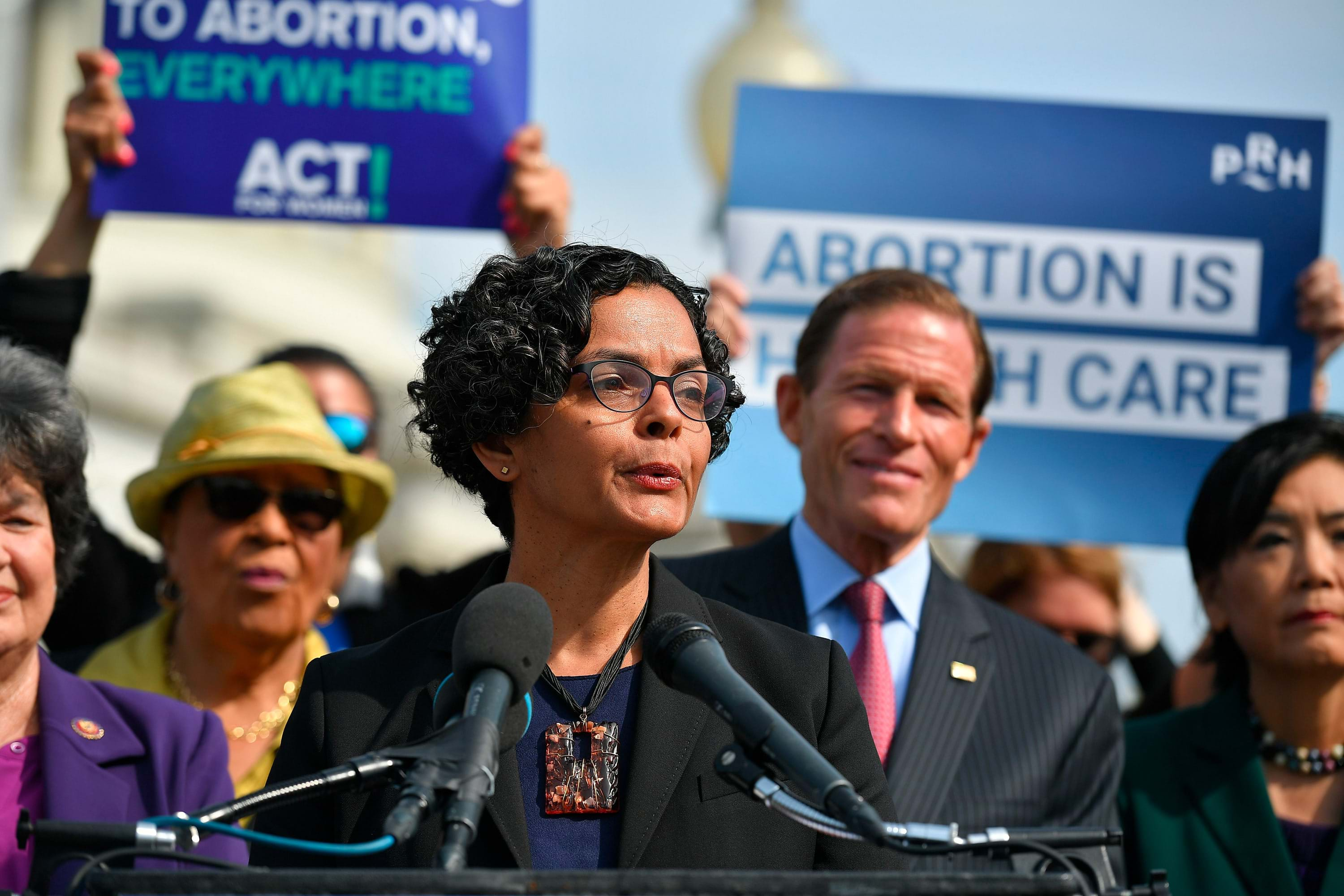
1994
Reproductive health sparks a debate in Egypt
In 1994, at the UN International Conference on Population and Development in Cairo, women and their sexual and reproductive rights were at the core of the conversation on population growth, thanks to the vigorous work of our grantees and women’s movements globally. With our support, our grantees took to the floor to advocate that people—rather than governments—should decide when to bring children into the world.
1994
Reproductive justice is born in Chicago
In 1994, a group of black women—who called themselves Women of African Descent for Reproductive Justice—wanted to make sure that women of color, other marginalized groups, and trans people were represented in the reproductive rights movement. Combining social justice with human rights, they launched a movement by publishing a historic full-page statement with 800 signatures in the Washington Post. Since then, Ford has made an effort to support reproductive justice organizations focused on underrepresented populations and regions in the US and globally such as SisterSong, Women with a Vision, Forward Together, the National Asian Pacific American Women’s Forum, and National Latina Institute for Reproductive Health.
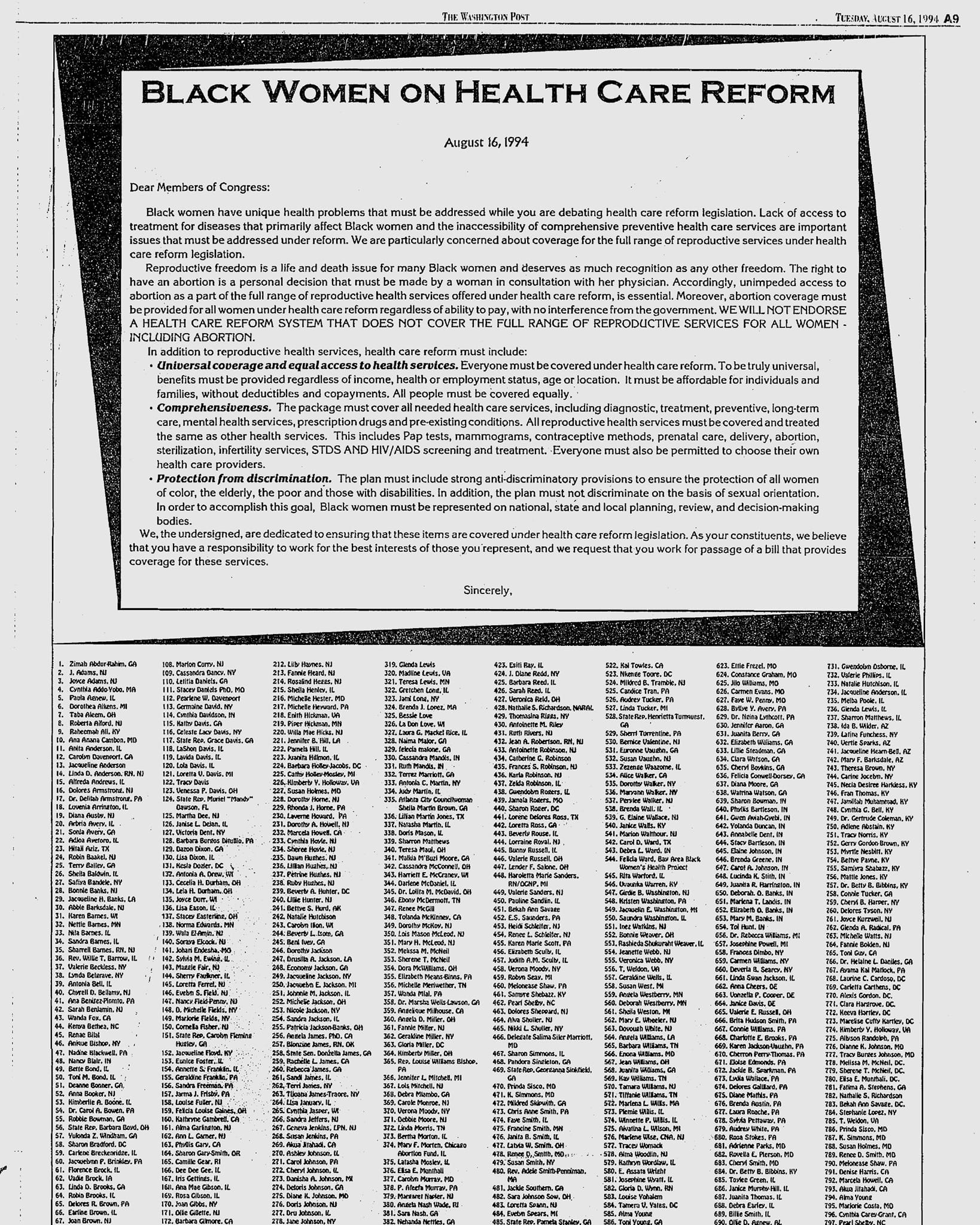
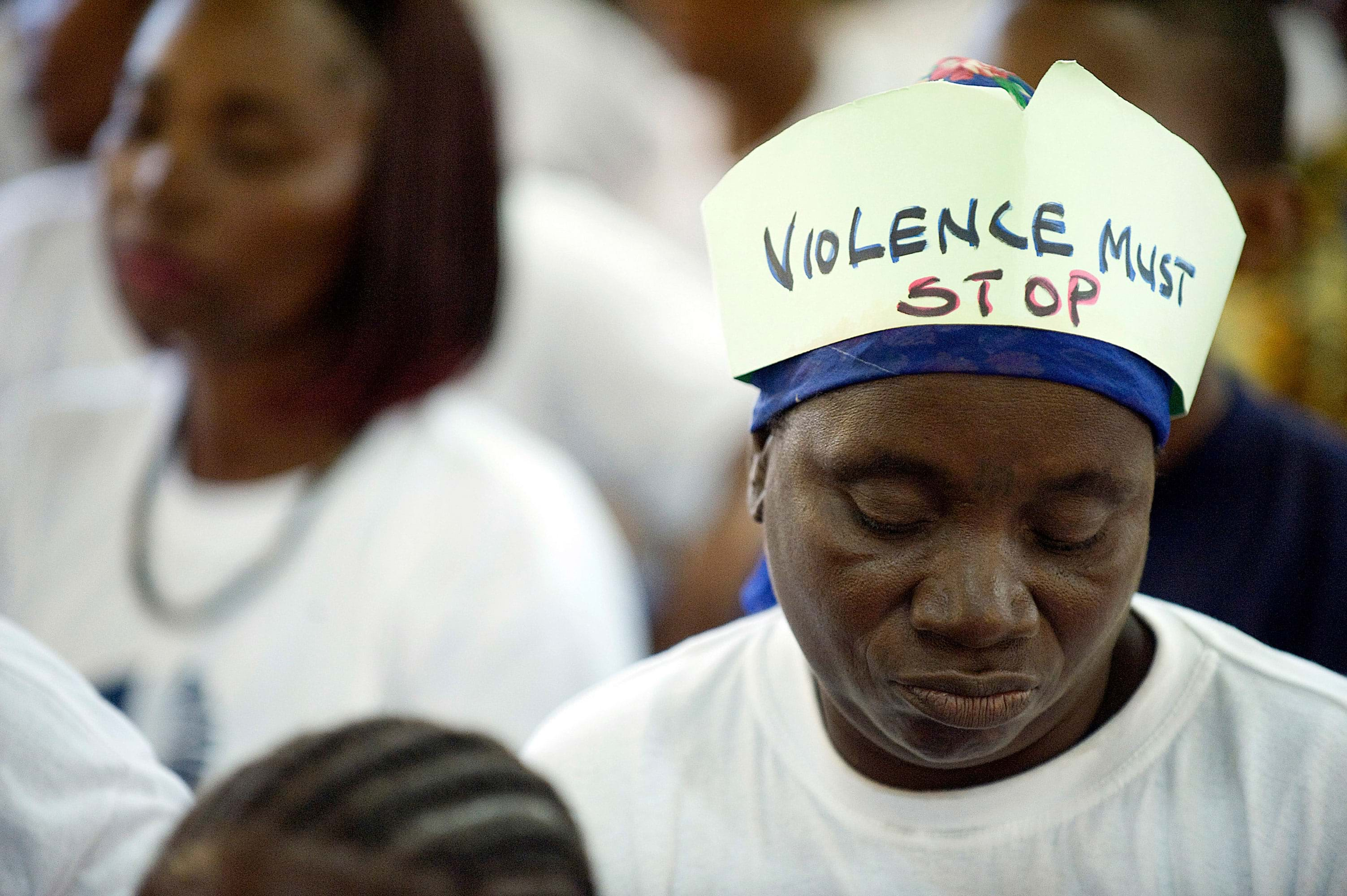
1994
Ford makes its first investments to combat violence against women and girls
From 1994 on, we have funded a multitude of organizations, working on violence against women and girls with a focus on the most vulnerable groups, from women of color to low-income women. In those early years, we established Vietnam’s first shelter for survivors and China’s first helpline for survivors, built crisis centers in the Philippines and counseling and training projects for survivors in Kenya, and we supported the development of regional alliances against femicide across Central America.
Understanding feminism around the world
Leading up to the UN Conference on Women in China, Ford teamed up with feminist scholar and professor Amrita Basu to publish The Challenges of Local Feminisms, a book that delved into women’s movements around the world and the distinctive influences and challenges they faced in different countries in order to identify and begin to work toward context-specific solutions.
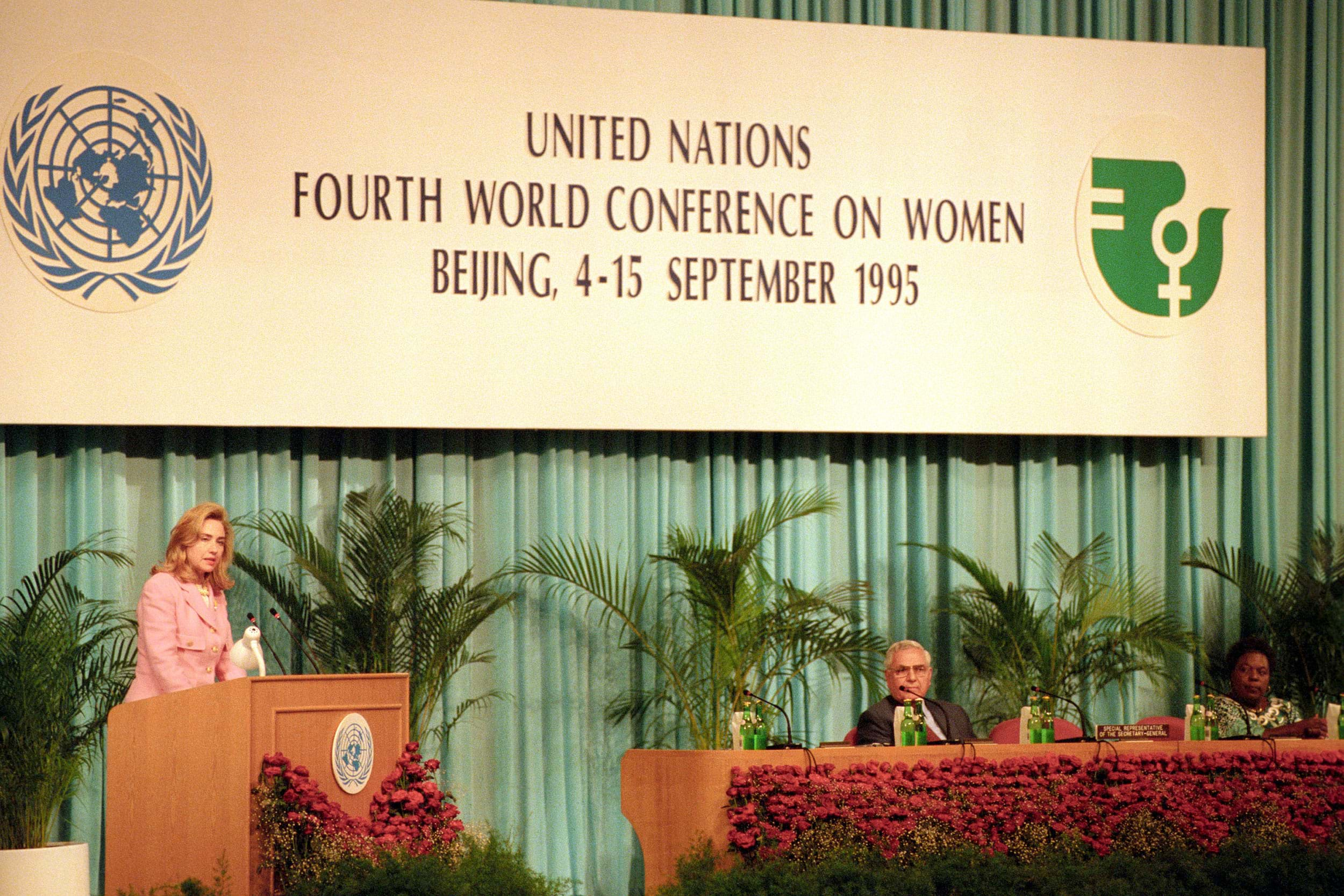
1995
Women of the world unite in China
Nearly 40,000 women from across the globe gathered for the UN’s 1995 World Conference on Women in Beijing. As a partner to the UN, Ford committed approximately $5 million to support the conference’s infrastructure, ensure key players across Africa, Asia, and Latin America participated, and foster conversations and convenings with civil society, government agencies, and UN organizations to help make the event a highly collaborative, multilateral effort. Following the conference, the foundation partnered with the UN Development Fund for Women (now part of UN Women) and a number of our grantees to develop Toward Beijing+10, a project to implement the 1995 Platform for Action.
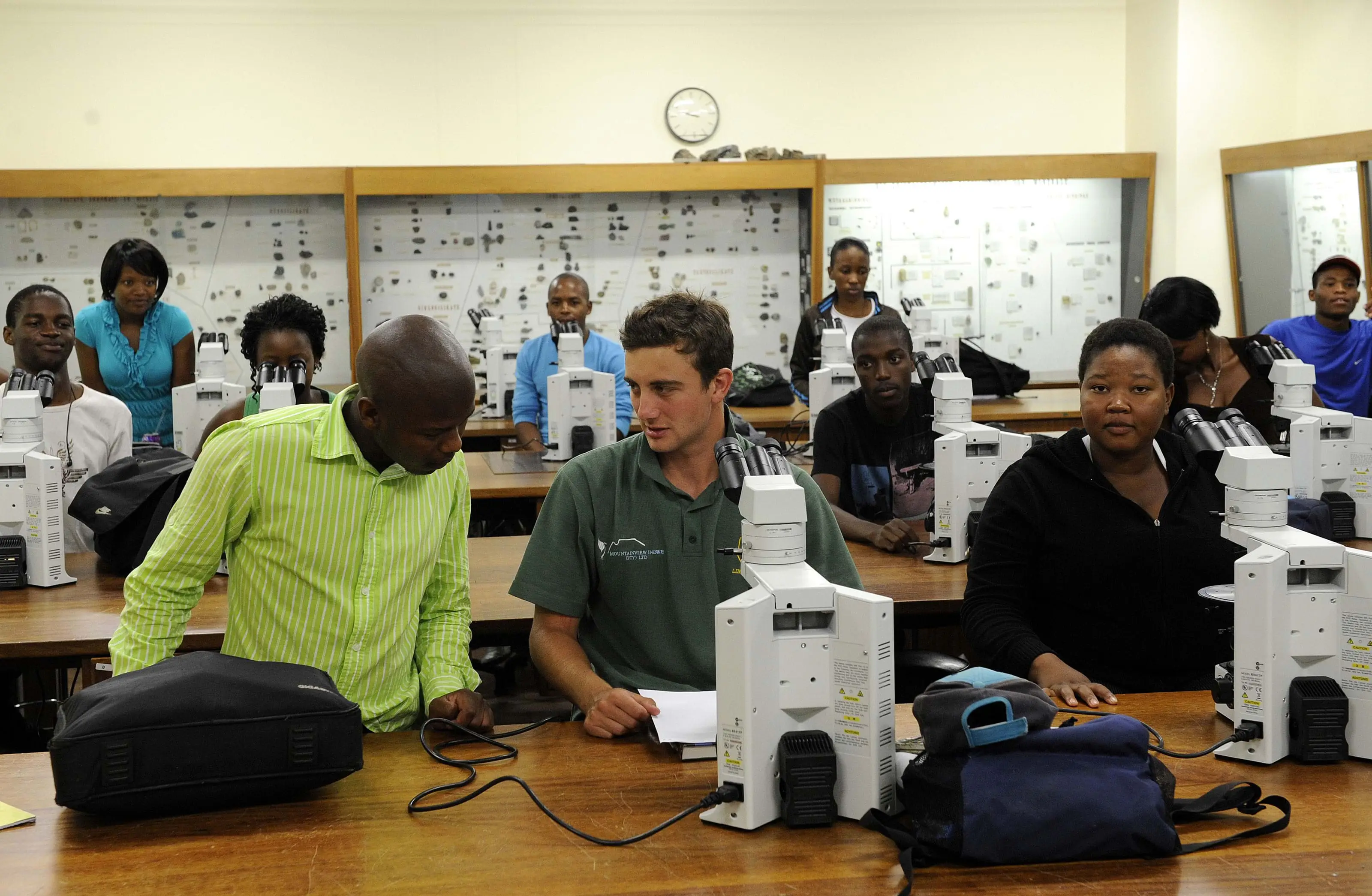
2000
Unlocking education opportunities for African women
In 2000, the Partnership for Higher Education in Africa launched with a commitment of $150 million from Ford to strengthen Africa’s universities and broaden opportunities for women. In 2005, the foundation renewed the partnership with an additional commitment of $200 million. Today, the partnership has improved conditions for more than four million African students enrolled at 379 universities and colleges across Ghana, Uganda, Egypt, Madagascar, and more.
Bringing a gender perspective to workers’ rights
In the early 2000s, Ford began to partner with and support organizations like the Annie E. Casey Foundation, the National Domestic Workers Alliance, and the Restaurant Opportunities Centers United that were putting women’s needs and voices, especially those of women of color, at the center of the debate around labor, workers’ rights, and social protections. Over the years, their efforts have been instrumental in achieving a string of victories to further opportunities for women’s economic equality.
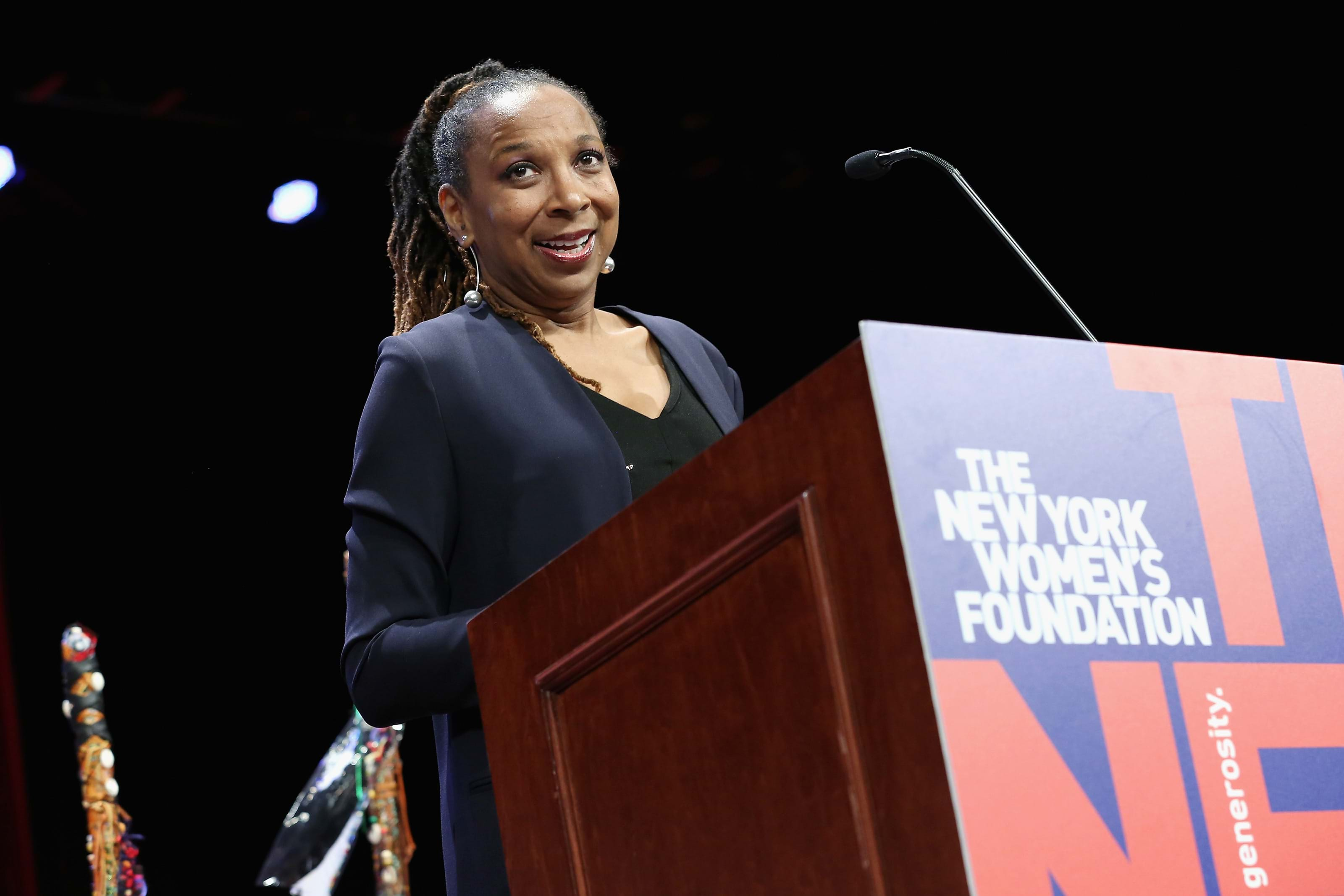
Examining the different contexts of global violence against women and girls
Ford launched a global study—led by Kimberlé Williams Crenshaw, one of the founders of intersectional feminism—looking at violence against women and girls in Brazil, South Africa, India, East Africa, and the US. Its aim was to better understand the contexts that lead to violence in different countries and develop more effective programming specific to geographical region.
2007
Elevating the voices of the Global South in the fight to end HIV/AIDS
In 2007, Ford launched an international initiative in Abuja, Nigeria, bringing together partners from the US and the Global South to influence the HIV/AIDS architecture to ensure the people most deeply affected, particularly women and adolescent girls, are part of the conversation and their rights and dignity are respected.
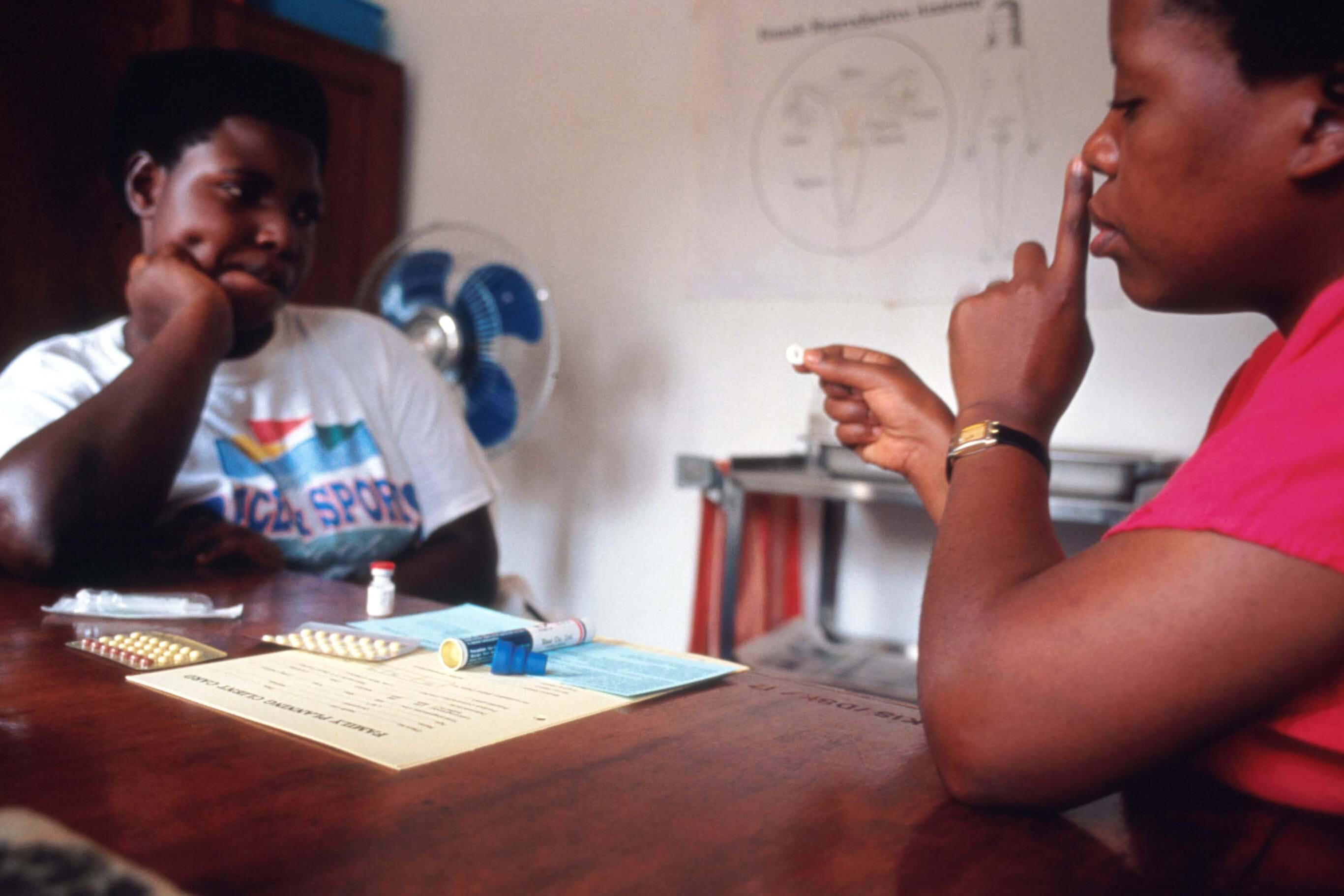
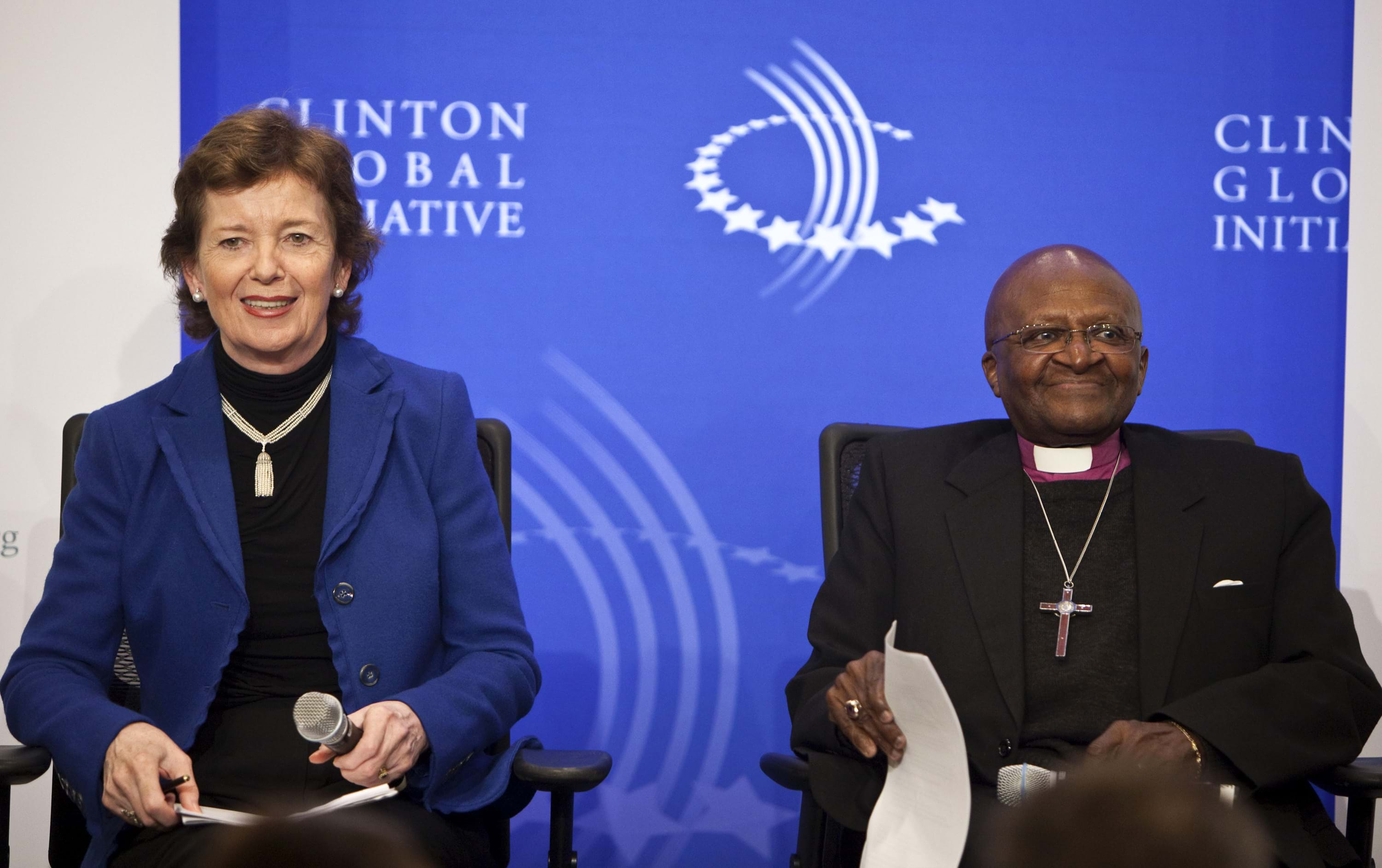
2011
Girls Not Brides makes ending child marriage a global priority
In 2011, Ford expanded its efforts to combat child marriage, dedicating $25 million to help create Girls Not Brides—and joining Desmond Tutu and Mary Robinson to introduce the effort at the Clinton Global Initiative. Today, the global partnership has grown to become a full-fledged cooperative of more than 1,300 organizations from over 100 countries.
2015
Ford supports the growth of women leaders with BUILD
In 2015, Ford launched BUILD, a $1 billion, five-year initiative to build the capacity of the foundation’s grantees worldwide, putting a special emphasis on supporting the growth of women leaders working on social justice as well as women’s rights organizations.
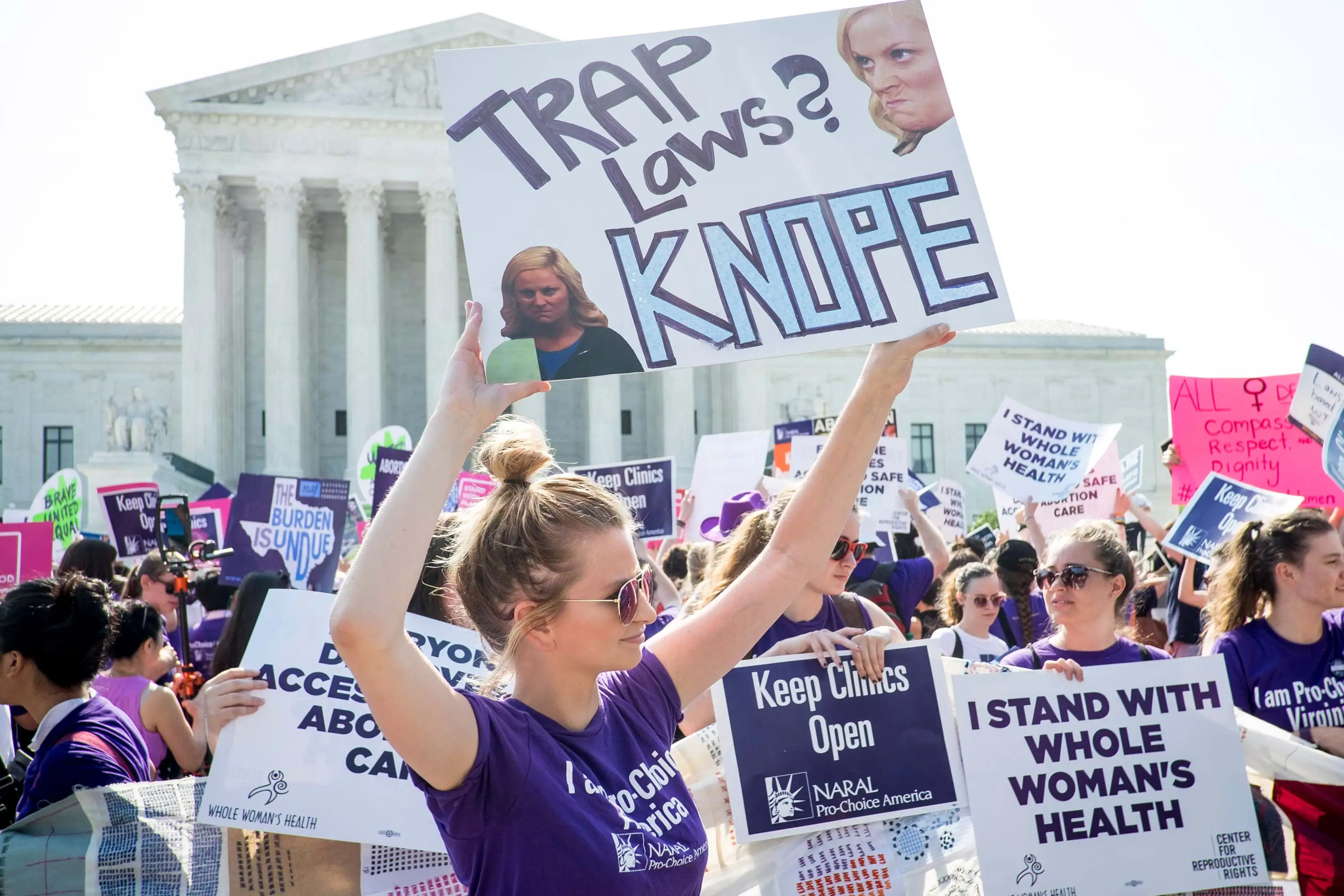
2015
The Center for Reproductive Rights wins a critical Supreme Court case
In 2015, the Center for Reproductive Rights, a longtime grantee of Ford, won the Supreme Court case, Whole Woman’s Health v. Hellerstedt, 579 US, prohibiting Texas from placing medically undue restrictions on the delivery of abortion services for women across the state.
Roberta Kaplan and Tina Tchen create the TIME’S UP Legal Defense Fund
In response to the revelations about Harvey Weinstein and the #MeToo movement, we supported the National Women’s Law Center as it partnered with lawyers Kaplan and Tchen to run the TIME’S UP Legal Defense Fund. To date, the fund has raised more than $22 million and has built a corps of nearly 800 lawyers serving thousands of brave individuals who have come forward to seek justice.
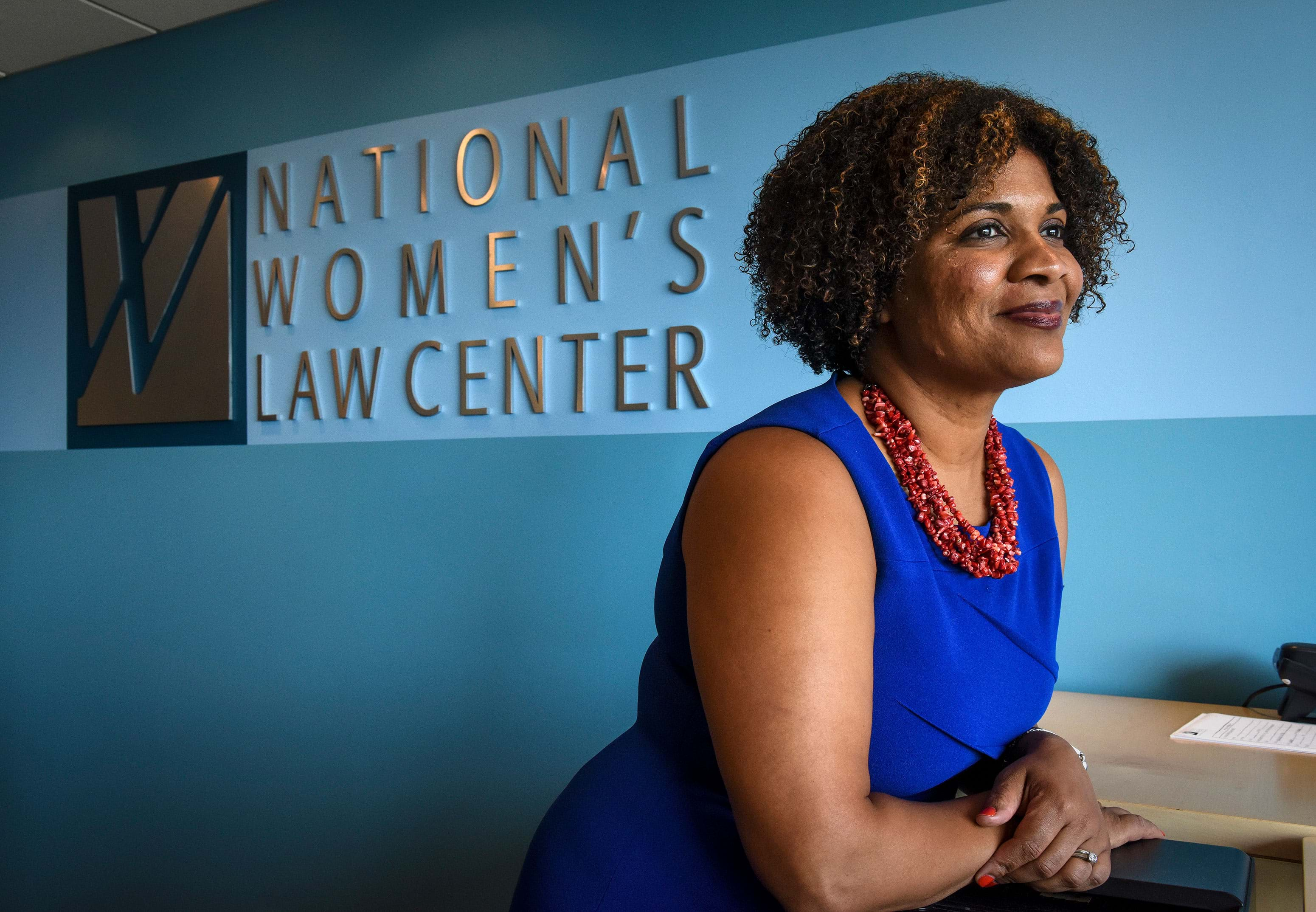
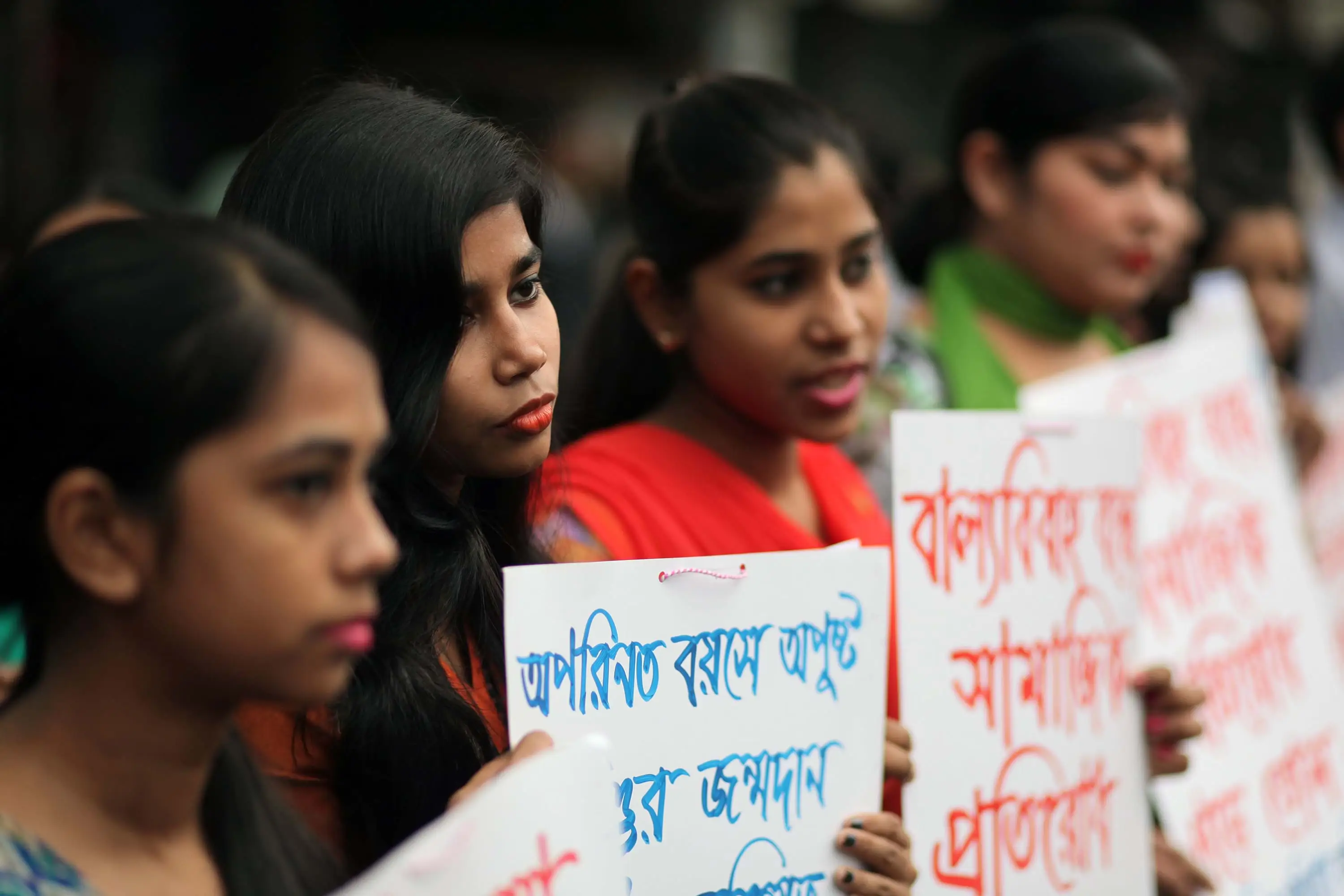
2018
Supporting communities to combat child marriage
In 2018, we helped create the Girls First Fund, a donor collaborative that champions community-led efforts to end child marriage and ensure that girls can create their own future. To date, the collaborative has made 150 grants, 90 percent to organizations led by women.
2019
The power of partnerships
In 2019, we leveraged the power of partnerships to better address the challenges facing women and girls globally, creating a number of regional and international funds, such as the Coalition for Women’s Empowerment in India, the Equality Fund, the Women’s Funds Collaborative, and the Reproductive Health and Women’s Rights Collaborative.
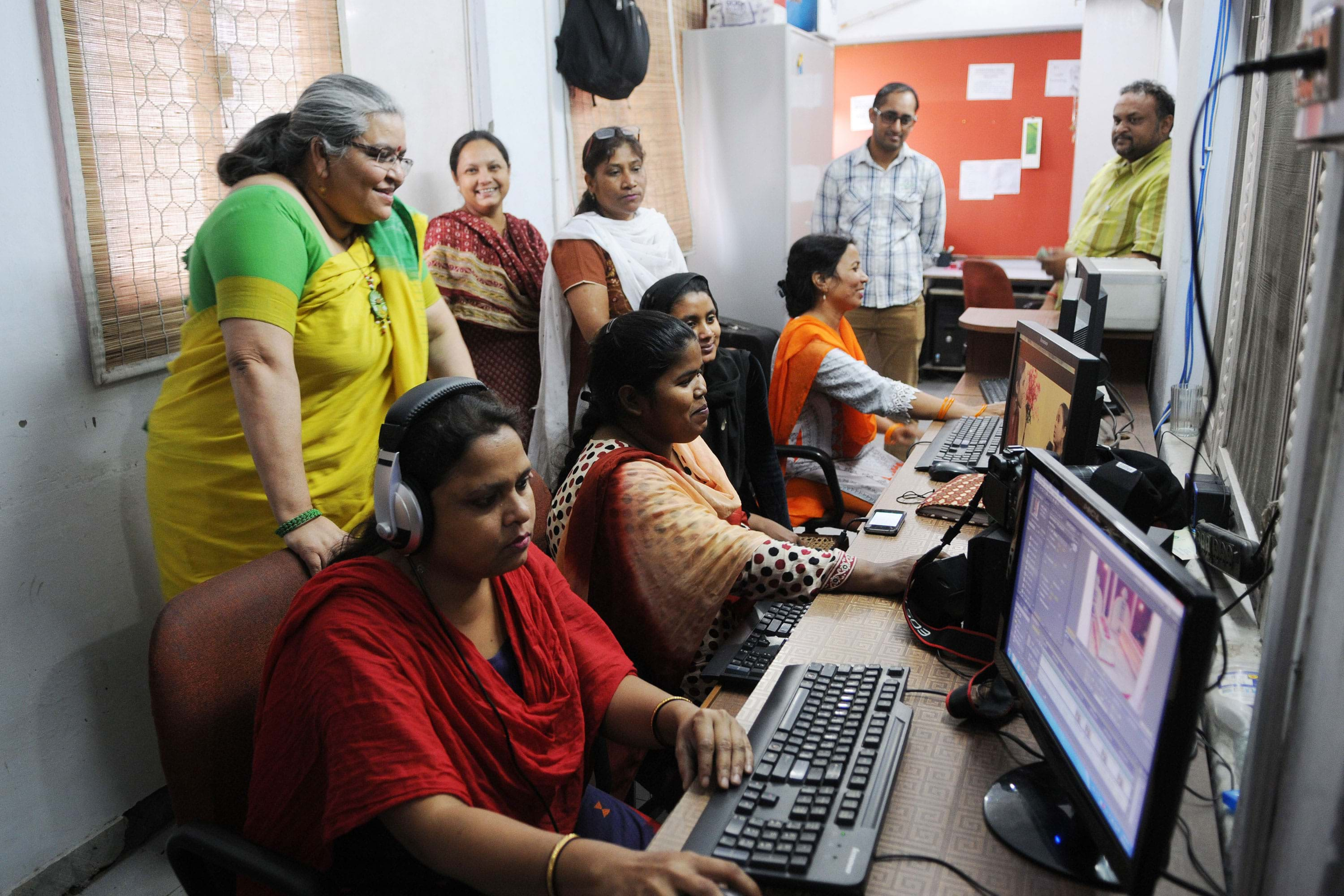
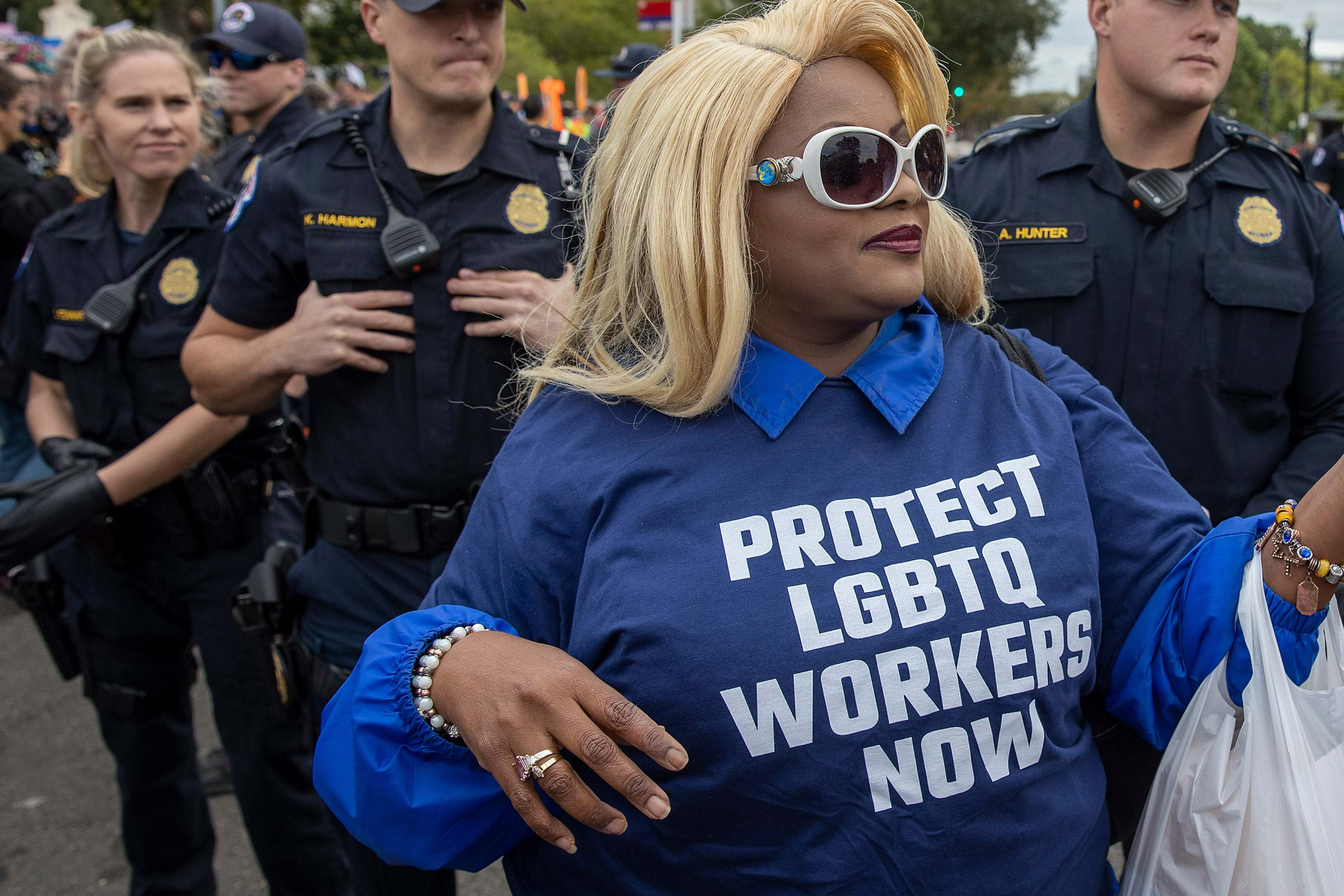
2019
New global standards ensure the right to a safe workplace
In 2019, the International Labour Organization adopted Convention No. 190 and Recommendation No. 206, thanks to the hard work of past and present grantees, such as International Domestic Workers Federation, Solidarity Center, Global Labor Justice, the Self-Employed Women’s Association (SEWA), and Women in Informal Employment: Globalizing and Organizing (WIEGO). A major win for workers everywhere, these new standards recognize that everyone across countries, sectors and occupations deserves to work in a safe, healthy workplace free from violence and harassment.
2019
Doubling down on violence against women and girls
In 2019, we focused our international gender justice efforts on ending violence against women and girls, starting with the creation of the Collective Future Fund in partnership with NoVo Foundation, Unbound Philanthropy, and the Gates Foundation, among others. The fund focuses on addressing the specific issues facing women of color and other groups particularly vulnerable to violence, such as domestic workers and migrants.
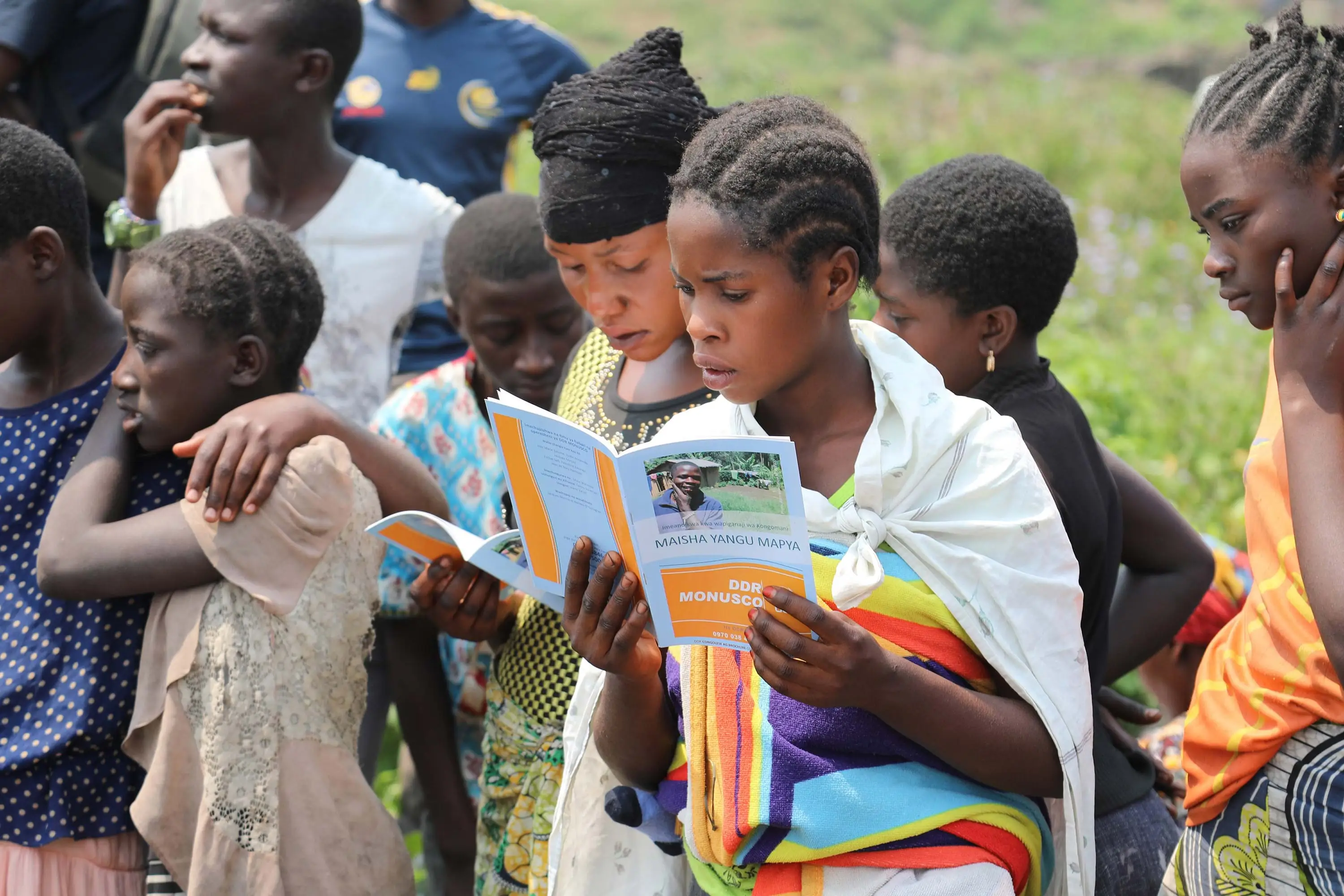
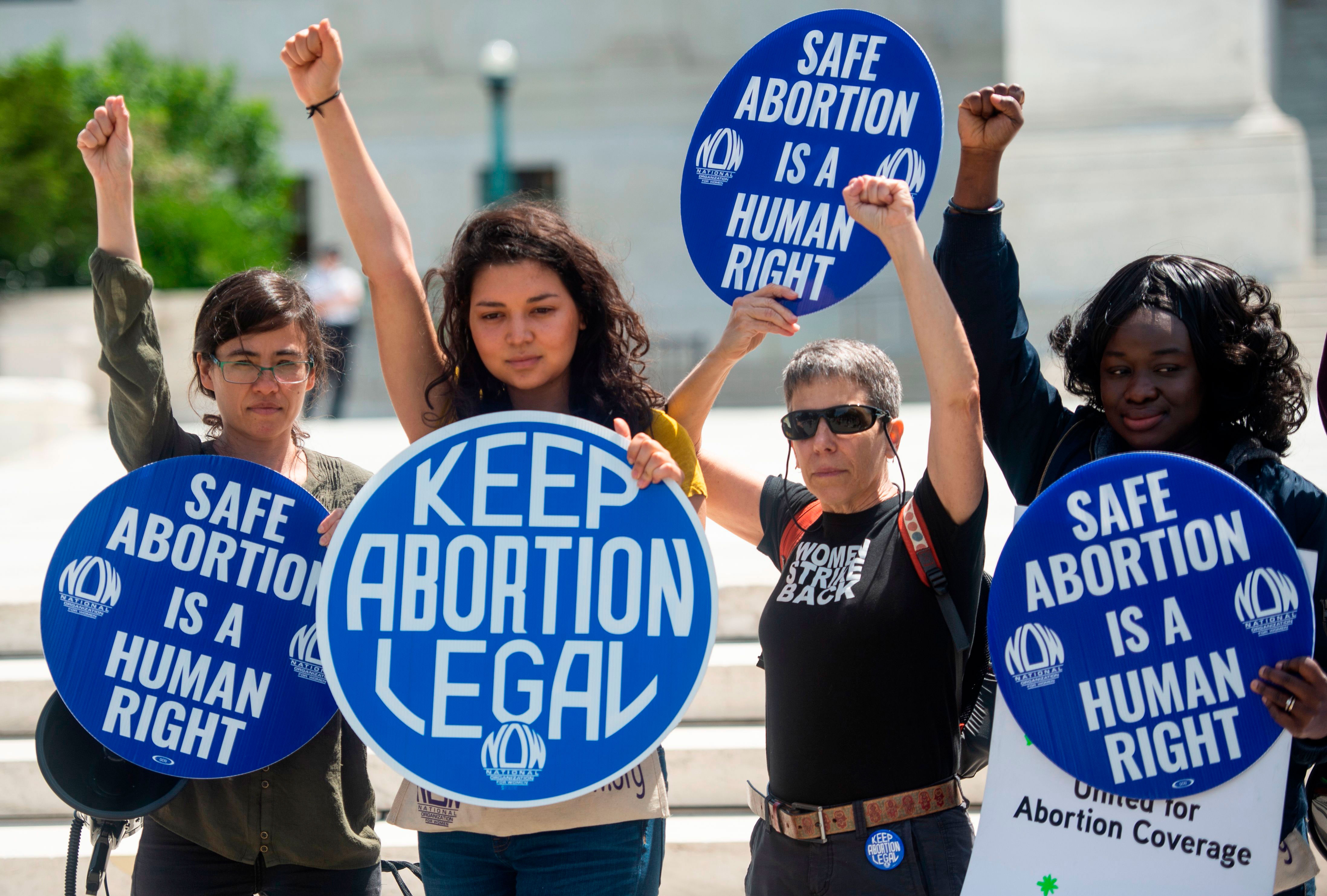
The Center for Reproductive Rights challenges a decision that threatens to dismantle Roe v. Wade
In March 2020, our grantees—the Center for Reproductive Rights and SisterSong, a women of color collaborative focused on reproductive justice that we helped form, face the Supreme Court in June Medical Services v. Russo, a case that came out of Louisiana that could open up the door for states to essentially eliminate abortion access.